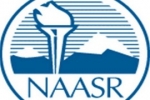 26.01.2015 THE MAIN DIRECTIONS OF ACTIVITIES OF THE CENTERS FOR ARMENIAN STUDIES IN THE USA
26.01.2015 THE MAIN DIRECTIONS OF ACTIVITIES OF THE CENTERS FOR ARMENIAN STUDIES IN THE USA
Tigran Ghanalanyan
Till mid-20th century Armenian Studies in America were developed by individuals and there were no organizations in this area. However, certain things had been done that prepared ground for future establishment of centers for Armenian Studies.
 22.01.2015 PROBLEMS OF THE CENTERS FOR ARMENIAN STUDIES AND THE WAYS OF THEIR SOLUTION
22.01.2015 PROBLEMS OF THE CENTERS FOR ARMENIAN STUDIES AND THE WAYS OF THEIR SOLUTION
Arestakes Simavoryan, Vahram Hovyan
Today the centers for Armenian Studies abroad face very serious problems and challenges, which not only hamper their normal activities, but pose threats to their very existence. These problems include lack of finance, specialists, research and educational materials and uncoordinated activities.
 29.12.2014 ABOUT THE SELF-ORGANIZATION PROBLEMS OF DIASPORA
29.12.2014 ABOUT THE SELF-ORGANIZATION PROBLEMS OF DIASPORA
Vahram Hovyan
In self-organizing the Diaspora the organizational entities are of vital importance, as they act as a live organism through which Diaspora carries out its activities. In this respect, it appears important to form a pan-national organization as an institution for self-organizing the entire Diaspora, which would be unlike the community structures that are institutions for self-organization of specific communities in Diaspora.
 25.12.2014 DISCUSSION OF ARMENIA’S GEOPOLITICAL STANDPOINTS IN DIASPORA
25.12.2014 DISCUSSION OF ARMENIA’S GEOPOLITICAL STANDPOINTS IN DIASPORA
Anna Zhamakochyan
In the recent years the Republic of Armenia (RoA) has been involved in geopolitical integration processes. Since 2010 the RoA was involved in the negotiation process for Deep and Comprehensive Free Trade Agreement with the EU, while in 2013 the RoA president announced about Armenia’s readiness to join the Customs Union of Russia, Kazakhstan and Belarus (and in future also the Eurasian Union).
13.11.2014 HISTORICAL TRUTH AGAINST TURKISH AND AZERBAIJANI FALSIFICATIONS IN INFORMATION WARFARE
Eduard L. Danielyan
More than five millennia-old ethno-spiritual, political and cultural roots of the Armenian statehood in the Armenian Highland are attested to by the archaeological and architectural monuments, petroglyphs, cuneiform, ancient and medieval written and other historic sources. Historical truth is the backbone and informational defensive shield of the national security of Armenia.
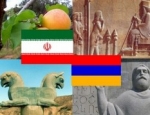 03.11.2014 THE ARMENIAN STUDIES IN MODERN IRAN
03.11.2014 THE ARMENIAN STUDIES IN MODERN IRAN
Vahram Hovyan
Currently there are three centers of Armenian Studies in Iran, two of which are located in Tehran and one in Isfahan. All three centers are university departments. One of such centers in Tehran is the Chair of Armenian Studies at the University of Tehran, and the other one is the Department of Armenian Language and Literature at the Islamic Azad University of Tehran. The third center is the Isfahan University’s Armenian Studies Department.
30.10.2014 FOR ANKARA, IS MASSACRE A POLICY OPTION?
by Thierry Meyssan
Is the new alliance between Turkey and France concerned only with economic issues, to wit entry into the European Union, or is it purely political? In this case, must Paris provide cover for Ankara whatever the policy? Does this support go as far as genocide?
 02.10.2014 NEW DEVELOPMENTS AROUND THE ISSUE OF CHURCH PROPERTY RETURN IN TURKEY
02.10.2014 NEW DEVELOPMENTS AROUND THE ISSUE OF CHURCH PROPERTY RETURN IN TURKEY
Vahram Hovyan
The problem of preserving and returning church properties in Turkey seized from Christian minorities is time to time brought into the political agenda. Recently the US House of Representatives Foreign Affairs Committee adopted the bill H.R. 4347, a.k.a. Turkey Christian Churches Accountability Act (on June 26, 2014 ordered to be reported unanimous consent), which once again made this issue a discussion subject in public/political and information dimensions.
 19.06.2014 THE ARMENIAN IDENTITY IN FRANCE IN THE GRIP OF MEMORIALIZATION
19.06.2014 THE ARMENIAN IDENTITY IN FRANCE IN THE GRIP OF MEMORIALIZATION
Tigran Yegavian
A year now from celebrating the centenary of the 1915 Genocide, the large Armenian Diaspora of France has made a priority of the « memorial duty » and the fight against revisionism at the expense of reflecting on their very future and lasting presence.
 16.06.2014 A CALL TO SAVE ALEPPO FROM DESTRUCTION
16.06.2014 A CALL TO SAVE ALEPPO FROM DESTRUCTION
Rev. Haroutune Selimian
The situation in Aleppo has taken a turn for the worse since the beginning of June. Dozens of mortar bombs have damaged or completely destroyed buildings in the predominantly Armenian neighborhoods of Nor Kyugh and Suleimanieh, as the opposition intensified its offensive in areas of Aleppo held by regime forces.
 16.06.2014 65 ARMENIAN FAMILIES FORCED OUT OF MOSUL AMID EXTREMIST TAKEOVER
16.06.2014 65 ARMENIAN FAMILIES FORCED OUT OF MOSUL AMID EXTREMIST TAKEOVER
Sources at the Armenian Prelacy in Iraq have said that 65 Armenian families and a priest in Mosul were forced out of the city after Islamist militants raided the city and took control of Iraq’s second largest city, reported the Aztag Daily newspaper.
 19.05.2014 KESSAB EVENTS: AN OUTLOOK FROM YEREVAN
19.05.2014 KESSAB EVENTS: AN OUTLOOK FROM YEREVAN
Vahram Hovyan
On March 21, 2014 a sudden breakthrough of militants from Turkey and capture of the Armenian-populated Kessab near the Turkish-Syrian border once again attracted the attention of the Armenian media and experts’ community on the Syria crisis and within this context, on the security problems of Armenians living in Syria.
 07.04.2014 CONTEMPORARY PROBLEMS OF CENTERS FOR ARMENIAN STUDIES ABROAD
07.04.2014 CONTEMPORARY PROBLEMS OF CENTERS FOR ARMENIAN STUDIES ABROAD
Vahram Hovyan
Centers for Armenian Studies are structures that conduct scientific research and/or higher education activities related to Armenian language, history, culture, politics, as well as generally to Armenia and Armeniancy. There are approximately 70-80 such institutions outside Armenia.
 03.04.2014 MOSCOW URGES UN SECURITY COUNCIL TO DISCUSS SITUATION IN ARMENIAN POPULATED KESSAB
03.04.2014 MOSCOW URGES UN SECURITY COUNCIL TO DISCUSS SITUATION IN ARMENIAN POPULATED KESSAB
Russian Ministry of Foreign Affairs urges the UN Security Council to discuss the situation in Armenian populated Kessab and give it a principled evaluation. Press department of the Ministry made a statement about this on April 1, 2014, as REGNUM Information Agency reports.
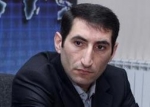 06.03.2014 THE ARMENIAN SCIENTIFIC AND ANALYTICAL COMMUNITY IN THE USA
06.03.2014 THE ARMENIAN SCIENTIFIC AND ANALYTICAL COMMUNITY IN THE USA
Arestakes Simavoryan
Currently the USA is the world leader by the number of “think-tanks”, “intellectual output” and other similar aspects. These structures are unique in terms of their activities and they significantly differ from academic institutions.
 20.01.2014 THE ARMENIAN SCIENTIFIC AND ANALYTICAL COMMUNITY IN RUSSIA
20.01.2014 THE ARMENIAN SCIENTIFIC AND ANALYTICAL COMMUNITY IN RUSSIA
Vahram Hovyan
The Armenian community in Russia is one of the oldest and largest ones among the Armenian diasporas. Some unofficial data suggest that there are about 2.5 million Armenians living in Russia. At the same time, one of the characteristic traits of Russia’s Armenian community is its deep integration in the Russian society.
 13.01.2014 ANALYTICAL COMMUNITY OF THE DIASPORA AS A POTENTIAL FOR THE COUNTRY: INTERNATIONAL EXPERIENCE
13.01.2014 ANALYTICAL COMMUNITY OF THE DIASPORA AS A POTENTIAL FOR THE COUNTRY: INTERNATIONAL EXPERIENCE
Arestakes Simavoryan
In the works of modern specialists of Diaspora studies an idea is often expressed that diaspora is not only a part of the people living in foreign countries that preserves to a certain extent the spiritual, cultural identity and strives to maintain ties with historical homeland, but...
 12.12.2013 ARMENIAN DIASPORA’S ACADEMIC AND ANALYTICAL COMMUNITY IN THE SPHERE OF HUMANITIES: OUTLINE
12.12.2013 ARMENIAN DIASPORA’S ACADEMIC AND ANALYTICAL COMMUNITY IN THE SPHERE OF HUMANITIES: OUTLINE
Tigran Ghanalanyan
There were many Armenian figures in the different communities of Diaspora who were involved in the academic and cultural areas of those countries. This is characteristic for the multi-century history of our scattered communities. Today Armenians from Diaspora are also among the intelligentsia of the countries they reside.
 08.10.2013 ARMENOLOGICAL CENTERS IN THE DIASPORA AS INSTITUTIONAL INTELLECTUAL RESOURCE
08.10.2013 ARMENOLOGICAL CENTERS IN THE DIASPORA AS INSTITUTIONAL INTELLECTUAL RESOURCE
Arestakes Simavoryan, Vahram Hovyan
The issue of revelation and consolidation of the national potential is peculiar for the countries with Diaspora. In such countries, the importance is also attached, besides domestic resources, to the external resources, represented by the Diaspora communities.
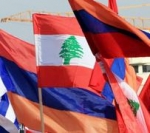 19.09.2013 ON THE MODERN CHALLENGES THE ARMENIAN COMMUNITY IN LEBANON FACES
19.09.2013 ON THE MODERN CHALLENGES THE ARMENIAN COMMUNITY IN LEBANON FACES
Vahram Hovyan
The Armenian community in Lebanon traditionally takes plays key role among the Armenian communities in the Middle East. Today it is even more obvious taking into consideration difficult situation in other Armenian communities in the Middle East region (Syria, Iraq, Egypt, etc.).
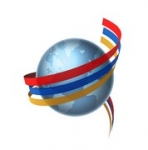 17.06.2013 TRANSFORMATIONS OF THE ARMENIAN DIASPORA: CHALLENGES AND POSSIBILITIES
17.06.2013 TRANSFORMATIONS OF THE ARMENIAN DIASPORA: CHALLENGES AND POSSIBILITIES
Vahram Hovyan
The Armenian Diaspora, which was formed in consequence of the Genocide, has undergone definite transformations over a period of all these decades; these transformations were connected with the “demographic” shifts taking place inside the Diaspora.
 14.06.2013 PROGRESSIVE BRITISH FIGURES’ APPRECIATION OF ARMENIA’S CIVILIZATIONAL SIGNIFICANCE VERSUS THE FALSIFIED “ANCIENT TURKEY” EXHIBIT IN THE BRITISH MUSEUM
14.06.2013 PROGRESSIVE BRITISH FIGURES’ APPRECIATION OF ARMENIA’S CIVILIZATIONAL SIGNIFICANCE VERSUS THE FALSIFIED “ANCIENT TURKEY” EXHIBIT IN THE BRITISH MUSEUM
Eduard L. Danielyan
The book presents famous British figures’ cultural and spiritual perception of Armenia (as a country of Paradise, sacred Mt. Ararat-Masis and the cradle of civilization) versus the "exhibit" (containing Turkish falsified interpretations of archaeological artifacts from the ancient monuments of the Armenian Highland and Asia Minor) with forged name "Ancient Turkey" in the "Room 54" of the British Museum.
06.06.2013 SCHOOLS OF THE ARMENIAN CATHOLIC COMMUNITY IN ISTANBUL
Arestakes Simavoryan
Besides the schools belonging to the Armenian Apostolic and Evangelical communities, great contribution to the education of the Armenians has been made by the Mkhitarian schools of the Armenian Catholic community, which still continue to carry out this mission.
 06.05.2013 ON POLITICAL VIEW OF THE ARMENIAN COMMUNITY IN SYRIA
06.05.2013 ON POLITICAL VIEW OF THE ARMENIAN COMMUNITY IN SYRIA
Vahram Hovyan
Events in Syria are of some interest for the Armenian academic and analytical circles not only in the aspect of regional and geopolitical changes which will also influence Armenia, but also for the reasons of safety of the Armenian community in Syria.
 16.04.2013 THE 113th CONGRESS, A LOOK AT THE 2014 MID-TERM ELECTIONS AND THE COUNTDOWN TO THE 100th ANNIVERSARY OF THE ARMENIAN GENOCIDE
16.04.2013 THE 113th CONGRESS, A LOOK AT THE 2014 MID-TERM ELECTIONS AND THE COUNTDOWN TO THE 100th ANNIVERSARY OF THE ARMENIAN GENOCIDE
By Taniel Koushakjian
With the House of Representatives remaining in Republican control and the Senate and White House again in Democratic hands, another session of a divided Congress began on January 3, 2013.
20.03.2013 WILL POPE FRANCIS REPEAT CARDINAL BERGOGLIO’S WORDS ON THE GENOCIDE?
By Harut Sassounian
Shortly after Cardinal Jorge Mario Bergoglio became Pope Francis I, Armenian and Turkish media outlets rushed to inform their audiences that the Argentinean Archbishop had acknowledged the Armenian Genocide on a number of occasions.
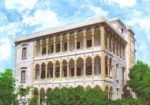 07.03.2013 HAIGAZIAN UNIVERSITY IN BEIRUT
07.03.2013 HAIGAZIAN UNIVERSITY IN BEIRUT
Tigran Ghanalanyan
Among the educational institutions of the Armenian Diaspora Beirut’s Haigazian University – the only higher educational institution in the Diaspora – holds a prominent place.
 06.03.2013 TURKEY’S SECRET ARMENIANS
06.03.2013 TURKEY’S SECRET ARMENIANS
The presence of “secret” Armenians in Anatolia (Western Armenia – “Akunq” edit.)has become the subject of a news report in the Argentine press. In an article titled “The Footprints of Secret Armenians in Turkey,"...
 04.03.2013 ACADEMIC AND EXPERT POTENTIAL OF THE DIASPORA: ISSUES OF ASSESSMENT AND ORGANIZATION
04.03.2013 ACADEMIC AND EXPERT POTENTIAL OF THE DIASPORA: ISSUES OF ASSESSMENT AND ORGANIZATION
Arestakes Simavoryan, Vahram Hovyan
It is very difficult to underestimate the influence of the intellectual potential on the practical politics. In the world’s leading countries the bodies, organizations and other political actors carrying out state policy...
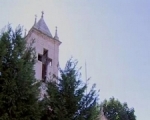 07.02.2013 ISSUE OF RETURNING CHURCH PROPERTIES IN TURKEY
07.02.2013 ISSUE OF RETURNING CHURCH PROPERTIES IN TURKEY
Vahram Hovyan
Confiscation of the properties belonging to the Christian communities in Turkey was one of the components of persecution and suppression policy carried out on the state level in regard to the national and religious minorities.
30.01.2013 TURKEY SHOULD BE KEPT IN THE DARK ON ARMENIAN GENOCIDE CENTENNIAL PLANS
By Harut Sassounian
It is no secret that Armenian communities around the world are busy planning scores of projects for the 100th anniversary of the Armenian Genocide on April 24, 2015.
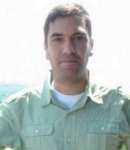 24.01.2013 WHICH PARLIAMENT RECOGNIZED THE ARMENIAN GENOCIDE FIRST?
24.01.2013 WHICH PARLIAMENT RECOGNIZED THE ARMENIAN GENOCIDE FIRST?
Haykaram Nahapetyan
International efforts directed to the recognition of the Armenian Genocide have a century-long history. About twenty countries recognized Armenian Genocide over the last 50 years.
 17.01.2013 ARMENIAN DIASPORA IN THE CZECH REPUBLIC
17.01.2013 ARMENIAN DIASPORA IN THE CZECH REPUBLIC
Tigran Ghanalanyan
The Armenian community in the Czech Rep. is one the newly formed Armenian communities in Europe. The study of the community has some peculiarities which are conditioned by the fact that the latter considerably differs from the traditional Armenian communities in Europe.
 30.11.2012 “ACTIVE DIPLOMACY IS ESSENTIAL FOR ARMENIA”
30.11.2012 “ACTIVE DIPLOMACY IS ESSENTIAL FOR ARMENIA”
Khatchik Der-Ghougassian
“Hayern Aysor”’s correspondent sat down for an interview with Argentinean-Armenian international relations expert Khatchik Der-Ghougassian.
29.11.2012 “WE ARMENIANS HAVE TO KEEP OUR ISSUES OF CONCERN IN THE FOCUS OF THE INTERNATIONAL COMMUNITY”
Anna Ohanyan
“Hayern Aysor”’s correspondent sat down for an interview with U.S.-based political scientist, international relations expert Anna Ohanyan, who was one of the participants of the Pan-Armenian Conference of Political Scientists and International Relations Experts.
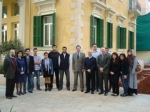 24.10.2012 THE ARMENIAN EVANGELICAL COMMUNITIES IN THE MIDDLE EAST
24.10.2012 THE ARMENIAN EVANGELICAL COMMUNITIES IN THE MIDDLE EAST
Vahram Hovyan
Currently there are Armenian Evangelical communities in 6 countries in the Middle East – in Lebanon, Syria, Iraq, Turkey, Iran and Egypt.
 06.09.2012 ACTIVITY OF THE ARMENIAN EVANGELICALS IN ARTSAKH
06.09.2012 ACTIVITY OF THE ARMENIAN EVANGELICALS IN ARTSAKH
Tigran Ghanalanyan
Artsakh has been a stage for the activity of the Armenian Evangelicals for about two hundred years. In both pre-Soviet and post-Soviet periods the Evangelicals played and still play considerable role there.
 03.09.2012 THE GROUNDS OF INTER-CONFESSIONAL COOPERATION IN THE DIASPORA
03.09.2012 THE GROUNDS OF INTER-CONFESSIONAL COOPERATION IN THE DIASPORA
Arestakes Simavoryan, Vahram Hovyan
One of the main goals of the study of the different confessional segments of the Armeniancy is the revelation of the efficient mechanisms of consolidation of the national potential.
03.09.2012 TIME FOR ACTION: SYRIAN-ARMENIANS NEED YOUR URGENT ASSISTANCE
By Harut Sassounian
There has been too much talk about the tragic crisis in Syria by self-described analysts and experts who have managed to spread misinformation, while inadvertently jeopardizing the safety of the Armenian community.
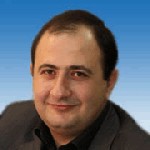 12.07.2012 ABOUT THE EDUCATIONAL PROBLEMS OF TURKEY’S ARMENIANCY
12.07.2012 ABOUT THE EDUCATIONAL PROBLEMS OF TURKEY’S ARMENIANCY
Ruben Melkonyan
Education has always had a great importance in the Armenian lives; around the world, Armenians have founded and developed their national schools. Armenian community of Istanbul (called Bolis by Western Armenians) also traditionally valued education and it was no mere chance that by the end of the 19th century there were 90 Armenian schools in Bolis, of which 40 community-based and 50 private ones.
 09.07.2012 US SUPREME COURT MAY HEAR FIRST EVER ARMENIAN GENOCIDE-RELATED LAWSUIT
09.07.2012 US SUPREME COURT MAY HEAR FIRST EVER ARMENIAN GENOCIDE-RELATED LAWSUIT
By Harut Sassounian
For the first time, a lawsuit indirectly involving the Armenian Genocide is being appealed to the U.S. Supreme Court. Since its initial filing in 2003, various federal courts have taken conflicting positions on this lawsuit.
 18.06.2012 LATIN RITE ROMAN CATHOLICS OF ARMENIAN DESCENT IN SYRIA
18.06.2012 LATIN RITE ROMAN CATHOLICS OF ARMENIAN DESCENT IN SYRIA
Hagop Cholakian
The article discusses the Latin Catholic proselytism that took place starting the late 19th century in northwestern regions of Syria with dense Armenian population, the conditions and methods of spreading the Latin rite Roman Catholic faith...
 07.06.2012 THE ARMENIAN EVANGELICAL COMMUNITY OF FRANCE
07.06.2012 THE ARMENIAN EVANGELICAL COMMUNITY OF FRANCE
Tigran Ghanalanyan
Besides the Armenian Apostolic and Catholic communities in France there is also Armenian Evangelical community. The establishment of the Armenian Evangelical community of France was conditioned by the same factors as the establishment of other Armenian communities.
 04.06.2012 THE ARMENIAN COMMUNITY IN GREECE AT THIS STAGE
04.06.2012 THE ARMENIAN COMMUNITY IN GREECE AT THIS STAGE
Vahram Hovyan
The number of the members of the Armenian community in Greece in the 20th century fluctuated. In 1923 it reached its peak (120 thousand people), which was conditioned by the mass migration of the Armenians to that country caused by the Armenian pogroms in 1890s, the Armenian Genocide in 1915 and Greek-Turkish war (1919-1922).
 29.05.2012 ON MANIFESTATIONS OF SELF-ORGANIZATION OF THE ARMENIANS IN TURKEY
29.05.2012 ON MANIFESTATIONS OF SELF-ORGANIZATION OF THE ARMENIANS IN TURKEY
Ruben Melkonyan
Over the recent years new processes, which has been developing in rather interesting way, can be observed among the Armenians in Turkey who has appeared in rather difficult situation.
 24.05.2012 CHRISTIANS IN TODAY’S TURKEY (Protestants and Catholics)
24.05.2012 CHRISTIANS IN TODAY’S TURKEY (Protestants and Catholics)
Arestakes Simavoryan
In February global mass media spread information that German Via Dolorosa Christian Union summoned Christians of the world to boycott Turkish “Fatih 1453” film, which, in fact, was anti-Christian.
22.05.2012 HOW SHOULD THE DIASPORA REACT TO NEW TURKISH OVERTURES?
By Harut Sassounian
I have been informed by reliable sources that Turkey’s Foreign Minister Ahmet Davutogluis continuing his efforts to initiate a personal ‘dialog’ with the Diaspora on Armenian-Turkish issues. Earlier this month, Davutoglu met with Armenian-Americans, as follow up to the meetings he held in Washington last March.
 18.05.2012 RHODE ISLAND LEGISLATURE CALLS FOR US TO RECOGNIZE KARABAKH
18.05.2012 RHODE ISLAND LEGISLATURE CALLS FOR US TO RECOGNIZE KARABAKH
By Khatchig Mouradian
The Rhode Island House passed a resolution today calling on the U.S. President and Congress to recognize the independence of the Nagorno Karabakh Republic.
 14.05.2012 THE ISSUE OF THE ARMENIAN GENOCIDE AND MODERN TENDENCIES OF TURKEY’S POLICY
14.05.2012 THE ISSUE OF THE ARMENIAN GENOCIDE AND MODERN TENDENCIES OF TURKEY’S POLICY
Ruben Melkonyan
As it is known struggle against the international recognition of the Armenian Genocide takes an important place on the foreign political agenda of Turkey. On the threshold of 2015 Turkey mobilizes all its old methods and adds new ones in both foreign and domestic policy.
 19.04.2012 THE RELATIONS BETWEEN DIFFERENT RELIGIOUS AND CONFESSIONAL SEGMENTS OF THE ARMENIANCY AND THE ISSUES OF THEIR CONSOLIDATION
19.04.2012 THE RELATIONS BETWEEN DIFFERENT RELIGIOUS AND CONFESSIONAL SEGMENTS OF THE ARMENIANCY AND THE ISSUES OF THEIR CONSOLIDATION
Vardan Astsatryan
In the current transitional period of the multi-polar world civilizational conflicts take place, with the globalized world being formed in parallel.
 16.04.2012 THE CONTEMPORARY PROBLEMS OF ARMENIANCY IN THE RELIGIOUS DIMENSION
16.04.2012 THE CONTEMPORARY PROBLEMS OF ARMENIANCY IN THE RELIGIOUS DIMENSION
Hovhannes Hovhannisyan
Over the history of the Armenian people, along with the political and state-related issues the religious, ecclesial and theological ones were among the most discussed and analyzed problems.
 12.04.2012 THE STUDY OF THE ISSUE OF ISLAMIZED ARMENIANS IN TURKEY: PROBLEMS AND PROSPECTS
12.04.2012 THE STUDY OF THE ISSUE OF ISLAMIZED ARMENIANS IN TURKEY: PROBLEMS AND PROSPECTS
Ruben Melkonyan
In the Armenian reality the issue of the forcibly Islamized Armenians has drawn the attention of the experts and general public in different periods.
16.03.2012 CLINTON SHOULD RESIGN FOR MAKING OFFENSIVE REMARKS ON ARMENIAN GENOCIDE
By Harut Sassounian
How many times can Secretary of State Hillary Clinton break her pledge and make insulting remarks on the Armenian Genocide before she is called a liar and forced to resign? Armenian-Americans are fed up with Mrs. Clinton and her boss Barack Obama who also has not kept his promises on the Armenian Genocide. And the problem transcends their views on the Armenian Genocide.
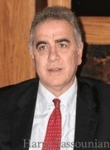 01.03.2012 HOW TO COUNTER APPEALS COURT’S RULING AGAINST INSURANCE CLAIMS
01.03.2012 HOW TO COUNTER APPEALS COURT’S RULING AGAINST INSURANCE CLAIMS
By Harut Sassounian
The federal Court of Appeals issued a shocking decision last week. In a unanimous ruling, it struck down a California law that had allowed heirs of Armenian Genocide victims to sue life insurance companies for unpaid claims.
 23.02.2012 BETWEEN A ROCK AND A HARD PLACE: THE ARMENIANS IN SYRIA
23.02.2012 BETWEEN A ROCK AND A HARD PLACE: THE ARMENIANS IN SYRIA
By Nanore Barsoumian
Two suicide car bombs targeting Syrian regional military and security headquarters shook Aleppo on Feb. 10, claiming 28 victims...
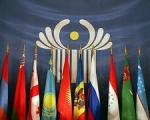 20.02.2012 A FAILED PROJECT. DEVOTED TO THE 20TH ANNIVERSARY OF THE CIS
20.02.2012 A FAILED PROJECT. DEVOTED TO THE 20TH ANNIVERSARY OF THE CIS
Sergei Grinyaev
This year the 20th anniversary of establishing the Commonwealth of Independent States is marked.
16.02.2012 BRYZA CONFESSES HIS LOVE FOR TURKEY, CONFIRMING HIS ANTI-ARMENIAN BIAS
By Harut Sassounian
It appears that my prediction about Matt Bryza leaving the State Department and working as a lobbyist is coming true.
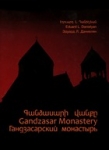 13.02.2012 GANDZASAR MONASTERY
13.02.2012 GANDZASAR MONASTERY
Eduard L. Danielyan
The book is devoted to the past and the present of the Gandzasar monastery and its significance in the history of the Armenian Apostolic Church.
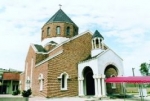 06.02.2012 ARMENIAN EVANGELICAL COMMUNITY IN URUGUAY
06.02.2012 ARMENIAN EVANGELICAL COMMUNITY IN URUGUAY
Vahram Hovyan
The Evangelical Armenians take special place in the Armenian community of 15 thousand in Uruguay.
02.02.2012 FRANCE SHOULDN’T ALLOW TURKEY TO MEDDLE IN ITS DOMESTIC AFFAIRS
By Harut Sassounian
For nearly a century, Turkey’s leaders have tried to hide the monstrous crime of the Armenian Genocide by covering up what really took place in the killing fields of the Syrian desert, then part of the Ottoman Empire.
 30.01.2012 ARMENIA IS BECOMING VULNERABLE TO CYBER-ATTACKS
30.01.2012 ARMENIA IS BECOMING VULNERABLE TO CYBER-ATTACKS
Samvel Martirosyan
An unprecedented upsurge of the number of Internet users has been observed in Armenia for recent one or two years and it is conditioned by both slashing of the prices for Internet connection and the fact that computers and mobile devices became more affordable.
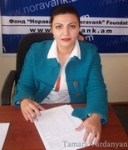 16.01.2012 ARMENIAN SCHOOLS IN TBILISI: THE END OF THE STORY
16.01.2012 ARMENIAN SCHOOLS IN TBILISI: THE END OF THE STORY
Tamara Vardanyan
The most important sphere regarding the issues connected with the Armenians from Tbilisi is the education.
13.01.2012 MEMORIES DIM OF ARMENIA'S SOVIET PAST
By Gayane Mkrtchyan, Naira Melkumyan
While younger people have little conception of life under communist rule, some Armenians miss the positive things lost after the Soviet collapse. Two decades have passed since the Soviet flag was lowered over Armenia, but Sedrak Mkhitaryan’s hands still shake when he brings out the red flags and Lenin medals he treasures from the glory days of communism.
12.01.2012 AZERBAIJAN AND OBAMA SUFFER SETBACKS AS AMB. BRYZA’S SERVICE IS CUT SHORT
By Harut Sassounian
As a result of successive political blunders by the Obama administration, Matthew Bryza was forced to abandon his ambassadorial post in Azerbaijan last week. Pres. Obama ignored repeated warnings that the candidate he was nominating as Ambassador to Azerbaijan in May 2010 had serious flaws. Members of the Senate Foreign Relations Committee accused Bryza of having a pro-Azerbaijani bias and questionable ties to Azeri officials.
 09.01.2012 CURRENT CONDITION OF THE ARMENIAN EVANGELICAL COMMUNITY IN RUSSIA
09.01.2012 CURRENT CONDITION OF THE ARMENIAN EVANGELICAL COMMUNITY IN RUSSIA
Vahram Hovyan
The Evangelical Armenians take special place among the Armenians living in Russia.
 23.12.2011 ERDOĞAN WARNS SARKOZY OF ‘GRAVE CONSEQUENCES’
23.12.2011 ERDOĞAN WARNS SARKOZY OF ‘GRAVE CONSEQUENCES’
Turkish Prime Minister Recep Tayyip Erdoğan sent a letter today to French President Nicolas Sarkozy, warning of the "grave consequences" a French bill recognizing Armenian genocide claims would have on bilateral relations.
22.12.2011 THE CLERICAL AND CHURCH ISSUES OF THE ARMENIAN CATHOLIC COMMUNITY IN RUSSIA
Arestakes Simavoryan
One of the confessional communities retrieved in the Diaspora over the recent century is the Armenian Catholic community in Russia. Its organizations take special place in Russia and it is an integral part of the Armeniancy of Russia. The history of the Armenian Catholic Community in Russia is rich in tragic pages in history.
19.12.2011 US COURT TO RULE ON TURKISH BANKS’ MOTION TO DISMISS ARMENIAN LAWSUITS
By Harut Sassounian
Two separate lawsuits were filed last year in US Federal Court in Los Angeles against the Republic of Turkey and two of its major banks demanding compensation for properties confiscated from Armenians after the 1915 Genocide.
 15.12.2011 ON THE ISSUE OF FORMATION TWO EQUAL IN RIGHTS STATES ON THE TERRITORY OF THE FORMER AZERBAIJANI SSR
15.12.2011 ON THE ISSUE OF FORMATION TWO EQUAL IN RIGHTS STATES ON THE TERRITORY OF THE FORMER AZERBAIJANI SSR
Mikhail Aghajanyan
One of the most substantive and at the same time vital issues for the adequate presentation of the essence of the Nagorno-Karabakh conflict and ways of its long-term setting is the issue of formation of two states – Nagorno-Karabakh Republic (NKR) and Azerbaijan Republic (AR) on the territory of the former Azerbaijani SSR.
 12.12.2011 ARMENIANS OF OTHER RELIGIONS AND CONFESSIONS: CHALLENGES AND POSSIBILITIES
12.12.2011 ARMENIANS OF OTHER RELIGIONS AND CONFESSIONS: CHALLENGES AND POSSIBILITIES
International research and practical conference
On December 9-10, 2011 in “Picasso” Hall at Congress Hotel in Yerevan research and practical conference on “Armenians of Other Religions and Confessions: Challenges and Possibilities” was held. The conference was organized by the Ministry of Diaspora of Armenia, “The Hyksos” Foundation and “Noravank” Foundation.
08.12.2011 THE ISSUE OF THE ARMENIAN GENOCIDE IN THE TURKISH PARLIAMENT
Ruben Melkonyan
It is known that the issue of the Armenian Genocide has it certain place on the Turkish political and academic agendas, and the “academic” circles work by the order of the state.
28.11.2011 TURKEY SEEKS TO MONOPOLIZE INVESTMENTS IN AMERICAN INDIAN TRIBAL LANDS
By Harut Sassounian
In a few weeks, when high-priced Turkish lobbying firms file their mandatory reports with the Justice Department, important revelations will emerge about their behind the scenes role in pushing through Congress a bill which would give Turkish companies a monopoly for investments in American Indian tribal lands.
17.11.2011 ON SOME TENDENCIES OF CONTEMPORARY TURKISH HISTORIOGRAPHY
Ruben Melkonyan
For many decades Turkey has been struggling against the recognition of the Armenian Genocide not only on political but also on academic levels.
07.11.2011 ARMENIAN COMMUNITY IN BULGARIA
Vahram Hovyan
Number and geographic diversion – The Armenian community in Bulgaria includes representatives of both the traditional Armenian Diaspora – the Armenians who appeared in Bulgaria before and in consequence of the Genocide – and “modern” Diaspora – those who migrated from the Republic of Armenia in consequence of difficult social and economic situation.
 31.10.2011 EDUCATIONAL ISSUES OF THE ARMENIAN COMMUNITY IN CZECH REPUBLIC
31.10.2011 EDUCATIONAL ISSUES OF THE ARMENIAN COMMUNITY IN CZECH REPUBLIC
Tigran Ghanalanyan
The Armenian community in Czech Rep. was established in the late 1980s and early 1990s. Today the number of the Armenians in Czech Rep. is about 10 thousand.
24.10.2011 96 YEARS LATER, TURKEY STILL PAYS A PRICE FOR GENOCIDE DENIAL
By Harut Sassounian
Almost a century after the fact, the Republic of Turkey continues to be disgraced for its persistent denial of the Armenian Genocide.
20.10.2011 THREE PRINCIPLES, SIX GUIDELINES AND “STATUS-QUO” IN THE KARABAKH CONFLICT SETTELEMENT
Mikhail Aghajanyan
The process of the Nagorno-Karabakh conflict settlement is going through one of the most intensive stages. It is more correct to speak about the intensification than about stirring up...
 18.10.2011 NICOLAS SARKOZY GIVES TURKEY TILL YEAREND TO RECOGNIZE GENOCIDE
18.10.2011 NICOLAS SARKOZY GIVES TURKEY TILL YEAREND TO RECOGNIZE GENOCIDE
On the sidelines of his visit to Armenia, French President Nicolas Sarkozy visited Tsitsernakaberd Armenian Genocide Memorial, where he addressed the issue of 1915 massacres in Ottoman Empire.
17.10.2011 CATHOLIC ARMENIANS IN POLAND
Arestakes Simavoryan
Today the generations of Armenians, who have been converted to other confessions for centuries, live in the countries of Eastern Europe – Romania, Hungary, Poland.
10.10.2011 AMERICAN, TURKISH AND ARMENIAN UNIVERSITIES PARTICIPATE IN JOINT TOURISM PROJECT
By Taniel Koushakjian
A joint tourism project between the United States, Turkey and Armenia has been actively working to foster greater cooperation and integration between the three countries and between Armenia and Turkey in particular.
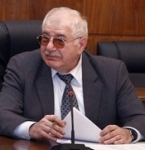 20.09.2011 NEW STATEHOOD AND NEW CHALLENGES
20.09.2011 NEW STATEHOOD AND NEW CHALLENGES
Gagik Harutyunyan
Geopolitical shifts at the beginning of the 20th century (World War I, revolution of 1917, collapse of the Russian and Ottoman Empires) turned out to be ordeal for Armenia – the Genocide and loss of the Western Armenia.
15.09.2011 FORECASTS ON TURKEY’S FUTURE
Arestakes Simavoryan
Great Russian writer and thinker Fyodor Dostoevsky going into the heart of the Eastern issue wrote in his diaries: “Once, not long ago, strange thing appeared in the foreign press; in ardent, almost fantastic way they were imagining what would happen with the whole world if Turkey is fully annihilated and put back to Asia”.
08.09.2011 TURKEY CAN RUN, BUT CAN’T HIDE FROM THE LONG ARM OF US LAW
By Harut Sassounian
World heavyweight boxing champion Joe Louis once warned one of his opponents: "You can run, but you can’t hide." This same warning now applies to the Turkish government and two of its major banks.
05.09.2011 ARMENIA AT THE INTERSECTION OF THE INTERESTS OF THE MILITARY AND POLITICAL BLOCKS
Sergey Sargsyan
The declaration of the intentions to intensify the works on NATO’s renovated Individual Partnership Action Plan (IPAP) sounded during the visit of a new NATO Secretary General’s Special Representative for the Caucasus and Central Asia James Appathurai made against the background of carrying over the announced CSTO Collective Rapid Reaction Forces’ maneuvers in Armenia on 2012...
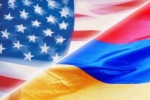 01.09.2011 THE DYNAMICS AND TENDENCY OF THE RELATIONS BETWEEN THE REPUBLIC OF ARMENIA AND THE US: CONCEPTUAL ANALYSIS
01.09.2011 THE DYNAMICS AND TENDENCY OF THE RELATIONS BETWEEN THE REPUBLIC OF ARMENIA AND THE US: CONCEPTUAL ANALYSIS
Sergey Minasyan
Foreign-policy relations with the key actors of the global politics constantly demand conceptual reconsideration and adjustment depending on the emerging regional conjuncture and global processes.
31.08.2011 ERDOGAN INADVERTENTLY PUBLICIZES ARMENIAN TERRITORIAL CLAIMS FROM TURKEY
By Harut Sassounian
Turkish Prime Minister Recep Erdogan's hysterical outburst at Armenia’s President last week had the salutary effect of publicizing to a worldwide audience Armenian territorial demands from Turkey!
 28.07.2011 DEVELOPMENTS AMONG THE ASSIMILATED ARMENIANS IN TURKEY: DYARBAKIR
28.07.2011 DEVELOPMENTS AMONG THE ASSIMILATED ARMENIANS IN TURKEY: DYARBAKIR
Ruben Melkonyan
The city of Dyarbakir, where many Armenians used to live, today also plays rather remarkable role in Turkey in the context of the development of the ethnic identity.
14.07.2011 WASHINGTON POST’S VIEW OF ARTSAKH
In a series of articles in the Washington Post, reporter Will Englund puts the Karabakh conflict into perspective.
 11.07.2011 NAGORNO-KARABAKH BALANCES BETWEEN PEACE AND WAR
11.07.2011 NAGORNO-KARABAKH BALANCES BETWEEN PEACE AND WAR
By Haykaram Nahapetyan
Despite an agreement among the U.S., Russian and French presidents at the G-8 summit in Deauville, France, that it is time for a peaceful settlement to the conflict over Nagorno-Karabakh, Armenian President Serzh Sargsyan and Azerbaijani President Ilham Aliyev failed to make much progress when they met in Kazan, Russia, last week.
 23.06.2011 THE POLITICAL IMPLICATION OF THE TURKISH-GEORGIAN “CULTURAL” DIALOGUE
23.06.2011 THE POLITICAL IMPLICATION OF THE TURKISH-GEORGIAN “CULTURAL” DIALOGUE
Tamara Vardanyan
Recently the issue of poor condition of the cultural monuments on the territory of Turkey and Georgia and the necessity of their restoration has stirred up.
21.06.2011 WHY PASS AN ARMENIAN GENOCIDE RESOLUTION FOR THE THIRD TIME?
By Harut Sassounian
A new Armenian Genocide resolution is being introduced in the House of Representatives this week. The first question is why Congress is being asked to pass a genocide resolution for the third time?
 20.06.2011 ON THE MODERN TENDENCIES IN THE “ARMENIAN POLICY” OF TURKEY
20.06.2011 ON THE MODERN TENDENCIES IN THE “ARMENIAN POLICY” OF TURKEY
Ruben Melkonyan
Turkish political machinery periodically adjusts its “Armenian policy” but its essence still remains the same. The ongoing developments come to prove that Turkey tries to use in regard to Armenia and Armeniacy new tactical methods.
 09.06.2011 ON THE ISSUES OF THE CATHOLICS ARMENIAN
09.06.2011 ON THE ISSUES OF THE CATHOLICS ARMENIAN
Arestakes Simavoryan
For decades the developments which has taken place in the life of the Armenians in Turkey has also impacted the Catholic Armenian community in Turkey.
 06.06.2011 “FROZEN CONFLICT” BETWEEN AZERBAIJAN AND ARMENIA BEGINS TO BOIL
06.06.2011 “FROZEN CONFLICT” BETWEEN AZERBAIJAN AND ARMENIA BEGINS TO BOIL
By Ellen Barry
BAKU, Azerbaijan — In a mostly empty Soviet-era building here on a recent morning, a 29-year-old woman pressed her eye against the scope of a sniper rifle, brown hair spilling over her shoulder, and took aim at virtual commandos darting between virtual trees.
 02.06.2011 CALIFORNIA TO EXTEND UNTIL 2016 DEADLINE TO SUE INSURANCE COMPANIES
02.06.2011 CALIFORNIA TO EXTEND UNTIL 2016 DEADLINE TO SUE INSURANCE COMPANIES
By Harut Sassounian
Eleven years ago, the California Legislature extended until the end of 2010, the deadline for filing lawsuits against insurance companies that had failed to pay benefits to heirs of Armenian Genocide victims.
05.05.2011 FOX-TV AIRS TWO INTERVIEWS ON THE ARMENIAN GENOCIDE
FOX-TV (Los Angeles) invited this writer for a live in-studio interview on the Armenian Genocide for two consecutive days. The first, lasting 5 minutes, took place on April 24, during the TV station’s evening news program. The second, lasting over 6 minutes, took place on April 25, during the Good Day LA Show. Below are excerpts from both interviews:
 02.05.2011 ON FORECASTS
02.05.2011 ON FORECASTS
Gagik Terteryan
The efficient activity of our political elite assumes adequate expert service. In particular, political leadership must have an opportunity to receive from the expert community the elaborations concerning:
 21.04.2011 ARMENIAN PROTESTANT COMMUNITIES IN SOUTH AMERICA
21.04.2011 ARMENIAN PROTESTANT COMMUNITIES IN SOUTH AMERICA
Tigran Ghanalanyan
Today alongside with the Armenian Apostolic and Catholic communities, the Armenian Protestant community exists in South America. In particular, there are the Armenian Protestant communities in Argentina, Brazil and Uruguay which are the integral part of the local Armeniancy.
20.04.2011 SERJ TANKIAN TO JOIN L.A. ARMENIANS TO PROTEST AGAINST OBAMA ON APRIL 21
By Harut Sassounian
Armenian-Americans are offended that Pres. Obama is going to launch his reelection campaign in Los Angeles this week, on the eve of April 24, having failed to honor his solemn promise to acknowledge the Armenian Genocide.
 18.04.2011 ON TURKISH POLICY OF NEO-OTTOMANISM AND DEVELOPMENTS IN THE ARAB WORLD
18.04.2011 ON TURKISH POLICY OF NEO-OTTOMANISM AND DEVELOPMENTS IN THE ARAB WORLD
Ruben Melkonyan
Back in 2001 the current Minister of Foreign Affairs of Turkey Ahmed Davutoglu while analyzing regional and geopolitical interests and priorities of Turkey in “Strategic depth: Turkey’s International Position” published back in 2001, put forward a number of theoretical assessments and proposals.
 14.04.2011 ARMENIANS OF TBILISI: NEW REALITIES
14.04.2011 ARMENIANS OF TBILISI: NEW REALITIES
Tamara Vardanyan
The efforts of the current Georgian authorities directed to the nation building, gradually form new realities at once on three levels; firstly on regional level, secondly, for Georgia itself in its aspirations and prospects of turning into an nation state ...
29.03.2011 ARMENIAN PROTESTANT COMMUNITY IN GEORGIA
Tigran Ghanalanyan
The study of the Armenian Protestant community is distinguished in the context of study of both the issues of the Armenians in Georgia and Protestant (Evangelical) Armenians in general.
 28.02.2011 ARMENIAN VARTO CLAN IN EUROPE
28.02.2011 ARMENIAN VARTO CLAN IN EUROPE
During the Armenian Genocide a large Armenian clan, which was called Varto, after its leader Vardan and which inhabited Sirnak province, managed to escape the massacres and to shelter in mountains. After that this group of survived Armenians, isolating themselves from the rest of the world, began their struggle for survival which had lasted for several decades.
28.02.2011 THREE QUESTIONS TURKEY’S AMBASSADOR WOULD NOT ANSWER...
By Harut Sassounian
Turkey’s Ambassador to the United States, Namik Tan, spoke at the University of Southern California’s Center on Public Diplomacy on February 16. His topic was: "Public Diplomacy: The Turkish Experience."
 31.01.2011 TURKEY: ROUND THE ISSUE OF ETHNIC IDENTITY
31.01.2011 TURKEY: ROUND THE ISSUE OF ETHNIC IDENTITY
Ruben Melkonyan
The issue of the ethnic identity in Turkey takes an significant place not only in the public discussions but it is also gradually acquires more important place on the political agenda. In July 2010 oppositional Kurdish Peace and Democracy party made a proposal in the Great National Assembly of Turkey which aroused violent reaction in the Turkish political field.
 20.01.2011 ARMENIAN EVANGELICAL COMMUNITY IN EGYPT
20.01.2011 ARMENIAN EVANGELICAL COMMUNITY IN EGYPT
Vahram Hovyan
The Armenian Evangelicals occupy special position in the Armenian community of Egypt – one of the key states in the Middle East. Despite smallness the Armenian Evangelical community in Egypt leads rather active life, which attracts attention of both expert community and academic circles.
 10.01.2011 ARMENIAN COMMUNITY IS STILL WAITING TO HEAR FROM CONGRESS
10.01.2011 ARMENIAN COMMUNITY IS STILL WAITING TO HEAR FROM CONGRESS
By Haykaram Nahapetyan
The “lame-ducking” Congress did not vote on H-Res 252 recognizing the period of systematic massacres of the Armenian people during the WW1 as genocide. On March 4th, it passed House Foreign Affairs Committee with 23 to 22 votes but speaker Nancy Pelosi did not bring the Armenian Genocide Resolution to the floor agenda, despite her initial pledge.
 27.12.2010 “THE NUMBER OF THE RECLAIMED ARMENIANS GROWS”
27.12.2010 “THE NUMBER OF THE RECLAIMED ARMENIANS GROWS”
Among the various processes taking place in today’s Turkey the processes round the ethnic issues occupy rather unique and important place. In this very context the reconversion (reconversion to Christianity) and such a phenomenon as reclaiming the roots should be considered.
 24.12.2010 ARMENIAN CATHOLIC COMMUNITY IN RUSSIA
24.12.2010 ARMENIAN CATHOLIC COMMUNITY IN RUSSIA
Arestakes Simavoryan
Records of the Catholic Armenians in Russia refer to the 18th century. Today on the territory of Russia Armenians are represented by three main confessions – Catholics, Protestants (Evangelicals) and adherents of the Armenian Apostolic Church. But in some regions there are Orthodox Armenians and in recent years there are also Lutheran Armenians.
23.12.2010 ARMENIANS SUE TURKEY CLAIMING U.S. AIR BASE LAND
By Harut Sassounian
Over the years, Armenians have gradually shifted their attention from the recognition of the Genocide to the pursuit of legal remedies for their massive losses suffered between 1915 and 1923. Several lawsuits have been filed recently in U.S. Federal Courts against Western insurance companies and banks.
 25.11.2010 ARMENIA-TURKEY: SOME TENDENCIES OF TURKISH POLICY
25.11.2010 ARMENIA-TURKEY: SOME TENDENCIES OF TURKISH POLICY
Ruben Melkonyan
Breakdown of the Zurich protocols by Turkish authorities struck serious blow on the international image of that country. After that Turkish party initiated measures of imitational character which had to create an impression that the Armenian-Turkish process continued and that Turkey adhere to the commitments it undertook.
 09.11.2010 SAINT CROSS CHURCH ON AKHTAMAR AND THE ISSUES OF THE ARMENIAN IDENTITY
09.11.2010 SAINT CROSS CHURCH ON AKHTAMAR AND THE ISSUES OF THE ARMENIAN IDENTITY
Ruben Melkonyan
Existing facts allow us to consider that various circumstances may serve as a stimulus for reclaiming Armenians living on the territory of Turkey and being on different stages of assimilation. In this aspect the Armenian-Turkish contacts observed in recent years, visits of Armenian tourists to Western Armenia, books on Armenian topics published in Turkey and other factors contribute to strengthening of significance of a true identity of the Islamized Armenians.
 22.10.2010 ARMENIAN PROTESTANT COMMUNITY IN IRAN
22.10.2010 ARMENIAN PROTESTANT COMMUNITY IN IRAN
Vahram Hovyan
Among the Armenian Protestant communities in the Middle East Armenian Protestant community in Iran, which was formed in the middle of the 19th century, takes a special place. Iran is one of the countries in the Near East which was not a part of the Ottoman Empire. So, formation of the Armenian Protestant communities processed here, unlike other Near Eastern countries (Turkey, Syria, Lebanon), independently from the process of the formation of the Armenian Protestant communities in the Ottoman Empire.
 30.09.2010 ON HISTORY AND ACTUAL PROBLEMS OF ARMENIANS OF DERSIM
30.09.2010 ON HISTORY AND ACTUAL PROBLEMS OF ARMENIANS OF DERSIM
Ruben Melkonyan
Dersim, which is currently on the territory of Turkey, in different periods took a special place for the Armenians, Zazas and Kurds who were established there. Due to its geographic position Dersim had been an asylum for the rebels and those who were persecuted for many times. There is a legend that in that very mountainous province a group of Armenians who had not adopted Christianity in 4th century sheltered.
 24.09.2010 ARMENIAN EVANGELICAL COMMUNITY IN SYRIA
24.09.2010 ARMENIAN EVANGELICAL COMMUNITY IN SYRIA
Vahram Hovyan
The Armenian Evangelical community of Syria is one of three confessional layers of the local Armeniancy, alongside with the Armenian Apostolic and Catholic communities. Taking into consideration organization and energies of the Armenian Evangelicals, it is necessary to pay attention to their activity.
 15.09.2010 ARMENIAN PROTESTANT COMMUNITIES IN THE US AND CANADA
15.09.2010 ARMENIAN PROTESTANT COMMUNITIES IN THE US AND CANADA
Tigran Ghanalanyan
For decades various Armenian Protestant Communities has been forming in the Diaspora. Among them Armenian Protestant communities in the US and Canada stands out. Those communities play an important role in the life of the Armeniancy in the US and Canada in general and in spiritual, educational and public spheres in particular.
 26.07.2010 ARMENIAN EVANGELICAL COMMUNITY IN BULGARIA
26.07.2010 ARMENIAN EVANGELICAL COMMUNITY IN BULGARIA
Vahram Hovyan
Taking into consideration that according to some viewpoints the Protestantism is the successor of Pavlikian and Tondrakian movements which were wide spread in Armenia in the Middle Ages and the followers of those movements were forcibly deported to Bulgaria in 8-9th centuries, one may say that Protestant Armenians settled in Bulgaria back in the Middle Ages. The teaching of Pavlikians had a great influence on the Bogomilian sect in Bulgaria which later on influenced Protestantism.
 23.07.2010 THE GEORGIAN AUTHORITIES ARE AGGRAVATING THEIR POLICY OF VIOLATION OF THE JAVAKHETI ARMENIANS’ RIGHTS (Statement of Javakheti political activist Vahagn Chakhalyan)
23.07.2010 THE GEORGIAN AUTHORITIES ARE AGGRAVATING THEIR POLICY OF VIOLATION OF THE JAVAKHETI ARMENIANS’ RIGHTS (Statement of Javakheti political activist Vahagn Chakhalyan)
On July 5, 2010 the Supreme Court of Georgia made a decision to leave the appeal on the verdict against my father‐ Ruben Chakhalyan, my younger brother‐ Armen Chakhalyan and me without hearing. Our sentences were once again upheld. The Supreme Court’s ruling was predictable and consistent with the decisions of the First Instance Court and the Appeals Court, as it humbly executed the order of the Georgian authorities, trampling on the basic norms of a fair trial.
 15.07.2010 ON CURRENT CONDITION OF THE ARMENIAN PATRIARCHATE IN ISTANBUL
15.07.2010 ON CURRENT CONDITION OF THE ARMENIAN PATRIARCHATE IN ISTANBUL
Rouben Melkonyan
Over the last several months the election in the Patriarchate of Istanbul has been the matter on the agenda in the Armenian community in Istanbul. The point is that the incurable disease connected with the memory was found on Patriarch Mesrop Mutafian which made him incapable. According to the church rules the elected patriarch, despite different circumstances, bears the title lifelong and in case of a disease a co-patriarch, who has equal authority, is elected.
 24.06.2010 ALONG ARTSAKH’S PATHS OF WAR TO THE CHURCH OF THE PRAYER FOR PEACE
24.06.2010 ALONG ARTSAKH’S PATHS OF WAR TO THE CHURCH OF THE PRAYER FOR PEACE
“The Chronicles of Karabakh” by writer, screenwriter and film director Boris Baratov is an illustrated book of huge cognitive, cultural and political significance. The deep love of the author for his homeland permeates the book, which is full of historical and contemporary facts, presented in chronological order and illustrated with documentary evidence.
 08.06.2010 ISSUES OF NATIONAL IDENTITY PRESERVATION IN THE ARMENIAN DIASPORA: SOCIAL-PSYCHOLOGICAL PERSPECTIVE
08.06.2010 ISSUES OF NATIONAL IDENTITY PRESERVATION IN THE ARMENIAN DIASPORA: SOCIAL-PSYCHOLOGICAL PERSPECTIVE
Sona Manusyan
Among the central problems of Diaspora communities and nations which have Diasporas, issues of the preservation of the identity take traditional place. In the context of globalization and transnational processes, alongside with the geopolitical, economic and cultural re-divisions, changes in the collective self-consciousness are taking place as well.
 27.05.2010 ARMENIAN COMMUNITY IN ISTANBUL IN THE CONTEXT OF ARMENIAN-TURKISH RELATIONS
27.05.2010 ARMENIAN COMMUNITY IN ISTANBUL IN THE CONTEXT OF ARMENIAN-TURKISH RELATIONS
Ruben Melkonyan
The Armenian community in Istanbul, which faces various problems today, plays a definite role in the Armenian-Turkish relations. The interest of the community in the normalization of the relations between Armenia and Turkey is natural but it is also obvious that Turkish authorities try to use the Armenians living in Turkey for their political purposes and especially when some unfavourable for Turkey processes are taking plays within the frameworks of the Armenian-Turkish relations or in the course of the international recognition of the Armenian Genocide.
 21.05.2010 STRATEGY OF DEVELOPMENT
21.05.2010 STRATEGY OF DEVELOPMENT
Gagik Harutyunyan
The stirring up of the issue connected with Armenian-Turkish relations and the approximation of the centenary of the Armenian Genocide occasioned to take new view of the current problems of the Armeniancy, to turn to our political history and possible prospects. This tendency should be perceived positively because both among us and in the world the changes, which demand the elaboration of strategy adequate to the new realities, are taking place.
 17.05.2010 THE GENERATIONS OF THE CONVERTED ARMENIANS IN EUROPE
17.05.2010 THE GENERATIONS OF THE CONVERTED ARMENIANS IN EUROPE
Ruben Melkonyan
While studying the issue of the forcedly Islamized Armenians and their generations new and interesting details about their geographic spread are emerging. Particularly, the issue of generations of the Islamized Armenians living in Europe at present is interesting and peculiar at the same time. It is known that there is scanty information about the current condition of the converted Armenians and if over the recent period some data about the Islamized Armenians in Turkey emerged, there is too little material about those living in Europe.
 13.05.2010 TURKISH SCHOLAR TANER AKCAM ADVOCATES CHANGE IN POLICY OF GENOCIDE DENIAL
13.05.2010 TURKISH SCHOLAR TANER AKCAM ADVOCATES CHANGE IN POLICY OF GENOCIDE DENIAL
By Harut Sassounian
Dr. Taner Akcam, one of the first Turkish scholars to acknowledge the Armenian Genocide, delivered two important lectures in Southern California last week. Based on historical research, he analyzed the underpinnings of Turkey’s denial of the Armenian Genocide and proposed solutions for its official acknowledgment.
 05.05.2010 WILSON HOUSE FEATURED ON ARMENIAN TELEVISION
05.05.2010 WILSON HOUSE FEATURED ON ARMENIAN TELEVISION
Wilson House was recently the feature of a report by the Public Television Company of Armenia. Political analyst and special correspondent to the U.S. Haykaram Nahapetyan visited the museum where he interviewed Executive Director Frank J. Aucella and Curator John Powell about the collection and Wilson’s relations with Armenia.
05.05.2010 THE CONFERENCE IN ARTSAKH ON FORCIBLE ISLAMIZATION OF THE ARMENAINS
On 20 April in Stepanakert, the capital of the Nagorno-Karabakh Republic, the NKR government and the Armenian Revolutionary Federation Dashnaktsutyun arranged conference on “The Forcible Islamization as a Component of the Genocide”. The event featured participants from Nagorno-Karabakh, Armenia, France and USA.
 03.05.2010 ARMENIAN PROTESTANT COMMUNITY IN LEBANON
03.05.2010 ARMENIAN PROTESTANT COMMUNITY IN LEBANON
Vahram Hovyan
The Protestant Armenians of Lebanon are, alongside with the Apostolic and Catholic Armenians, one of the three confessional stratums of the Armenian community in that country. The Armenian Protestant community, established back in the 19th century, expanded after the Armenian Genocide when the Protestant Armenians, together with other Armenians, immigrated to that country from other places of the Ottoman Empire.
28.04.2010 “THE PRESERVATION OF THE ARMENIAN IDENTITY IN MIXED MARRIAGES” THEORETICAL AND PRACTICAL CONFERENCE
On April 25-26 “The Preservation of the Armenian Identity in Mixed Marriages” theoretical and practical conference took place. It was arranged by the Ministry of Diaspora of the RA with the assistance of National Academy of Sciences, Yerevan State University and “Noravank” Foundation.
 26.04.2010 TURKEY: DAVUTOGLU'S TO-DO LIST
26.04.2010 TURKEY: DAVUTOGLU'S TO-DO LIST
Following his trip to the United States, Turkish Foreign Minister Ahmet Davutoglu traveled to Azerbaijan April 19, after which he will travel to Iran. Though Ankara and Washington are pursuing a fresh diplomatic attempt to simultaneously restore Turkish-Armenian ties and resolve territorial differences between Azerbaijan and Armenia, they will continue to face heavy resistance from both Baku and Moscow in their efforts. Meanwhile, Turkey will use the Armenian-Azerbaijan dispute to involve Iran in another regional affair, thereby showing Ankara’s capacity as a potential mediator between the United States and Iran.
 23.04.2010 ISRAELI SCHOLAR ASSAILS ISRAEL’S DENIAL OF THE ARMENIAN GENOCIDE
23.04.2010 ISRAELI SCHOLAR ASSAILS ISRAEL’S DENIAL OF THE ARMENIAN GENOCIDE
By Harut Sassounian
An important international symposium on “Armenia-Turkey: How to Normalize Relations,” was held in Paris on April 14. It was organized by the French Bureau of the Armenian Cause and the Armenian National Committee of France.
 22.04.2010 ARMENOCIDE: HISTORICAL PRECEDENT OF THE CLASH OF THE CIVILIZATIONS (genesis, evolution, outcome)
22.04.2010 ARMENOCIDE: HISTORICAL PRECEDENT OF THE CLASH OF THE CIVILIZATIONS (genesis, evolution, outcome)
Levon Shirinyan
In this article the Armenocide is presented against the background of the clash of the civilizations. The reference to the assessments of the Armenian Genocide as a grave crime against “the humanity and civilization” (24 May, 1915), as Holocost (1918), are made. The essence of the Turkish (Ottoman, Kemalist) strategy of carrying out and denial of the Genocide is defined.
 15.04.2010 ROADMAP TO NOWHERE OR NEW DELAY TACTIC: GENOCIDE RECOGNITION IN 2015?
15.04.2010 ROADMAP TO NOWHERE OR NEW DELAY TACTIC: GENOCIDE RECOGNITION IN 2015?
By Harut Sassounian
Faced with deadlock in ratifying the Armenia-Turkey Protocols, the major powers are desperately looking for a face-saving way out of the current dilemma. France, Russia and the United States have invested far too much time and effort to walk away from the negotiated and signed, but not ratified, "deal of the century."
 12.04.2010 ARMENIAN PROTESTANTS
12.04.2010 ARMENIAN PROTESTANTS
Tigran Ghanalanyan
The origin of the Protestantism in Armenia is connected with a number of historical circumstances. In new times they engineered vigorous activity in Armenia. Of course, the dissemination of the Protestant movement in Armenia took place gradually but in the 19th century it took a mass character and as a result the Protestants really succeeded. From Protestant groups the most widespread among the Armenians was the Evangelical.
 06.04.2010 ON PERCEPTION OF THE ISSUE OF THE ISLAMIZED ARMENIANS
06.04.2010 ON PERCEPTION OF THE ISSUE OF THE ISLAMIZED ARMENIANS
Ruben Melkonyan
Alongside with the stirring up the study of the issue of the Islamized Armenians the following question has also appeared before the scholastic discourse in Armenia: Do we have to preference to ethnicity or religious stripe while identifying the Armenian?
 27.03.2010 DID TURKEY’S AMBASSADOR REALLY LOBBY FOR PASSAGE OF GENOCIDE RESOLUTION?
27.03.2010 DID TURKEY’S AMBASSADOR REALLY LOBBY FOR PASSAGE OF GENOCIDE RESOLUTION?
Harut Sassounian
Thousands of articles are posted on the internet every day. But, very few make us fall off our chairs! Last week I came across a shocking news item posted by the Turkish Forum -- the largest website for Turkish news. It was titled: "Forgotten Ambassador in Sierra Leone Uses Armenian Genocide Resolution to solve his Problem." Here is the summary in translation of that incredible article: "In recent years, parliaments of several countries have adopted resolutions on the Armenian Genocide. In retaliation, Turkey has recalled its ambassadors from these countries.
 19.03.2010 FORCIBLE ISLAMIZATION OF THE ARMENIANS DURING THE GENOCIDE: PROCESS AND EFFECTS
19.03.2010 FORCIBLE ISLAMIZATION OF THE ARMENIANS DURING THE GENOCIDE: PROCESS AND EFFECTS
Rouben Melkonyan
One of the important components of the state Turkish policy – the forcible Islamization of the non-Muslim nations, which in different periods was implemented in regard to the Armenians as well, is presented in the book. This consecutive policy became especially active in the years of the Armenian Genocide and as a result thousands of Armenians were forcibly Islamized.
 16.03.2010 THE PROTESTANT ARMENIANS
16.03.2010 THE PROTESTANT ARMENIANS
Vahram Hovyan
The Protestant Armenians form one of the layers of the Armenians who belong to different confessions. The Protestantism was spread among Armeniancy in the 19th century. The first Protestant Armenian community was formed in 1846 in Istanbul by order of sultan Abdulmecid. It was called “Protestant nation” (millet). At first the number of the Armenian Protestants grew and they spread over the other regions of the Ottoman Empire including Western Armenia.
 12.03.2010 ARMENIAN STUDIES IN JERUSALEM
12.03.2010 ARMENIAN STUDIES IN JERUSALEM
Mickael Araqelyan
Armenian Studies Centre of Israel is in Jerusalem. It was founded in 1967 by Professor Michael Stone and it works till today at the Hebrew University. The Armenian Studies Centre is the independent branch of the Department of the Indian and Iranian Studies and it is subject to the Institute of African and Asian Studies at humanities faculty. The Georgian studies are taught within the framework of the Armenian programme.
 11.03.2010 ARMENIAN CULTURAL HERITAGE DEMOLITION, BY TURKEY (during 1915 to 2009)
11.03.2010 ARMENIAN CULTURAL HERITAGE DEMOLITION, BY TURKEY (during 1915 to 2009)
“Armenian cultural heritage demolition, by Turkey (during 1915 to 2009)”, see in pdf.
 09.03.2010 ATTITUDE OF THE ARMENIAN PATRIARCHATE IN INSTANBUL TOWARDS THE ISSUE OF THE FORCIBLY ISLAMIZED ARMENIANS
09.03.2010 ATTITUDE OF THE ARMENIAN PATRIARCHATE IN INSTANBUL TOWARDS THE ISSUE OF THE FORCIBLY ISLAMIZED ARMENIANS
Ruben Melkonyan
As a result of the historical developments in the 15th century the Armenian Patriarchate in Istanbul was established, which, besides spiritual and religious had also had secular and political functions connected with the Armenians living in Turkey. Alongside with the stance and the attitude of the Patriarchate to various issues of Armenians living in the Ottoman Empire and then in the Republic of Turkey it would be also interesting to consider the approaches and the policy of Patriarchate as regarded to the issue of the Armenians forcibly Islamized during the Armenian Genocide.
 01.03.2010 ARMENIAN CATHOLICS IN TURKEY
01.03.2010 ARMENIAN CATHOLICS IN TURKEY
Arestakes Simavoryan
There is an incomplete idea of the current situation of Armenians in Turkey in the discourse of Armenia and the comprehensive examination of this issue is of great importance. It should be mentioned that the study must include both the issues of Apostolic Armenians and the issues of Catholic, Protestant and Islamized Armenians.
24.02.2010 “IF THERE IS NO JAVAKHQ, THERE WILL BE NO ARMENIA…”
The Coordinating Committee on Protection of the Rights of Armenians from Javakhq, which unites five non-governmental organizations (including two from Javakhq), on 18 February hold a workshop in “Tekeyan Centre” devoted to the issues of preserving Armeniancy and protection of the rights of the Armenians from Samtskhe-Javakhq-Tsalka region. Four reports and many short addresses had been made for two and a half hours.
 22.02.2010 ON THE TOPICAL ISSUES OF ARMENIAN COMMUNITY IN ISTANBUL
22.02.2010 ON THE TOPICAL ISSUES OF ARMENIAN COMMUNITY IN ISTANBUL
Ruben Melkonyan
Among the Armenian communities outside Armenia the community in Istanbul, which now faced very serious problems, has always played an important role. It should be mentioned that among the Armenian communities spread all over the Ottoman Empire only community in Istanbul had survived after the Genocide and expanded on the account of the Armenians who came from the provinces. While in Turkish provinces the Armenian community live had not re-established (the only exception is, at some extent, Armenia village of Vakifli).
 18.02.2010 TEN REASONS WHY TURKS WON’T ALLOW THEIR LEADERS TO RATIFY THE PROTOCOLS
18.02.2010 TEN REASONS WHY TURKS WON’T ALLOW THEIR LEADERS TO RATIFY THE PROTOCOLS
In earlier columns, I pointed out Turkey’s deceptive designs in negotiating and signing the Protocols with Armenia on October 10, 2009. In addition to planning to deceive Armenia and international public opinion, Turkish leaders tried to mislead their closest ally, Azerbaijan, and the Turkish public, about the potential benefits of the Protocols. Even though the Protocols were clearly in Turkey’s interest, its leaders tried to oversell the benefits of the negotiated agreement in order to overcome possible objections from critics at home and abroad, particularly Azerbaijan.
 16.02.2010 NEW PUBLICATION
16.02.2010 NEW PUBLICATION
There are not too many documentaries and especially auteur documentaries about the Armenian Genocide. But there are far less works connected with the filming of those who had survived the Genocide.
The new work by Suzanne Khardalian is devoted to the issues and problems of this kind of filming.
11.02.2010 "OH, WHAT A TANGLED WEB WE WEAVE, WHEN FIRST WE PRACTICE TO DECEIVE!"
The title of this article, taken from Walter Scott’s epic poem, the Marmion, aptly describes the web of deceit weaved by Turkey’s leaders in seeking to create the false impression of wanting to normalize relations with Armenia. Under the guise of opening the border and establishing diplomatic relations with Armenia, Turkish officials actually intended to: extract concessions from Armenia – returning Karabagh (Artsakh) to Azerbaijan, forming a historical commission to review the facts of the Genocide, and blocking territorial demands from Turkey; prevent the acknowledgment of the Armenian Genocide by third countries, particularly the United States; and generate a positive image in order to facilitate Turkey’s entry into the European Union.
 21.01.2010 ARMENIAN COMMUNITY TO HOLD “CO-PATRIARCHY” ELECTION
21.01.2010 ARMENIAN COMMUNITY TO HOLD “CO-PATRIARCHY” ELECTION
Turkey’s Armenian community has officially applied to the Istanbul governorship to begin the election process for a co-patriarch because of the illness of the current patriarch, Mesrop II. Under the Armenian Church’s canon law, Mesrop II will retain the title until his death even after the co-patriarch is elected. The electorate is composed of 50,000 members of Istanbul’s Armenian community. The Armenian community is preparing for the second “co-patriarchy” election in the history of the Turkish Republic. Current Patriarch Mesrop II, the 84th to hold the office, is ill and, in case of his death, the co-patriarch will assume the job after 40 days. According to the Armenian Church’s canon law, Mesrop II will keep his title until his death. But because he is suffering from dementia, it is necessary to elect a co-patriarch.
 14.01.2010 A FAMILY TREE UPROOTED BY A 60-YEAR-OLD SECRET
14.01.2010 A FAMILY TREE UPROOTED BY A 60-YEAR-OLD SECRET
Dan Bilefsky
Fethiye Cetin, a prominent member of the estimated 50,000-strong Armenian-Turkish community and one of Turkey’s leading human rights lawyers, believes a seminal moment has arrived in which Turkey and Armenia can finally confront the ghosts of history and possibly even overcome one of the world’s most enduring and bitter rivalries.
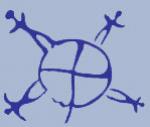 30.10.2009 PRESS RELEASE
30.10.2009 PRESS RELEASE
The European Union is following the trial of the Javakheti political activist Vahagn Chakhalyan. The European Union Commissioner for External Relations Benita Ferrero-Waldner responds to the Member of European Parliament Sylvie Guillaume On September 15 the Member of the European Parliament, Sylvie Guillaume wrote to European Commissioner for External Relations Benita Ferrero-Waldner, asking him to draw the attention of the relevant structures of the EU to the case of the Javakheti political activist Vahagn Chakhalyan On October 7 Mme. Ferrero-Waldner responded to this letter...
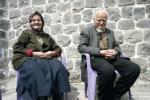 06.10.2009 INSIGHTS FROM A CONVERTED ARMENIAN FAMILY IN DIYARBAKIR 1
06.10.2009 INSIGHTS FROM A CONVERTED ARMENIAN FAMILY IN DIYARBAKIR 1
Diyarbakir (also known as Amed or Amida) is located in the south-eastern part of Turkey. Its population is 1.5 million with Kurdish majority. Before 1915, the Armenians had a large quarter in the city along with an active market which was burnt to ground on the eve of the Armenian genocide in 1915. The city was famous with St. Kirakos Church known for its high tower bell which was seen from any part of the city. Today, the tower bell no more exists and the church is in ruins.
 14.09.2009 HAUNTED BY HISTORY
14.09.2009 HAUNTED BY HISTORY
The ruins of the ancient Armenian capital of Ani are haunting, and haunted. On what is now a windblown patch of grassland enclosed in colossal walls and dotted with ancient cathedrals, there was once a great city. You can still see the ghosts of its streets outlined in the turf, and inside the granite churches you can make out the fading faces of saints and kings painted on the ceilings more than a millennium ago.
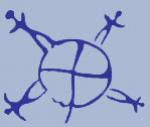 04.09.2009 PRESS RELEASE “Yerkir” Union welcomes the fact of addressing the problems ofGeorgia and Javakheti Armenians by the President of the Republic of Armenia
04.09.2009 PRESS RELEASE “Yerkir” Union welcomes the fact of addressing the problems ofGeorgia and Javakheti Armenians by the President of the Republic of Armenia
On September 01, 2009 the President of the Republic of Armenia, Serzh Sargsyan, in his speech at the annual meeting of the Armenian diplomatic corps, dwelled on the problems of Javakheti Armenians, saying, particularly, the following: “We should make a serious effort to provide possible assistance to the Armenians of Georgia. Our policy logic in respect to Javakhk should proceed from the premise of ‘integration without assimilation’.
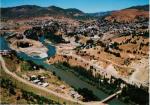 22.06.2009 “NAMES OF THE NUMBER OF VILLAGES AND SACRED SITES IN DERSIM ARE ARMENIAN”
22.06.2009 “NAMES OF THE NUMBER OF VILLAGES AND SACRED SITES IN DERSIM ARE ARMENIAN”
Zaza musician Mikael Aslan from Dersim is one of the bearers and the continuers of the musical heritage of the region. There is rather big number of Armenian songs and melodies of Dersim in his repertory. The collection and the preservation of the segments of Armenian cultural layers, including songs, which are spread all over the territory of present Turkey, plays a significant role.
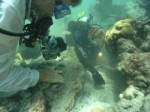 08.06.2009 LONG-LOST ARMENIAN SHIP, THE STUFF OF LEGEND, TO BECOME A “LIVING MUSEUM” IN THE CARIBBEAN Explorers unravel mystery of the “Quedagh Merchant” hijacked in 1698
08.06.2009 LONG-LOST ARMENIAN SHIP, THE STUFF OF LEGEND, TO BECOME A “LIVING MUSEUM” IN THE CARIBBEAN Explorers unravel mystery of the “Quedagh Merchant” hijacked in 1698
Indiana University’s Charles Beeker (l.) and Fritz Hanselmann collect a sample from what is believed to be the wooden keel of the Quedagh Merchant under a pile of coral-shrouded cannons on June 2. Burned and scuttled off the coast of this former Spanish colony, an Armenian merchant ship captured by British privateer Captain William Kidd has since become the stuff of legend and an elusive prize for treasure hunters.
 01.06.2009 PROBLEMS OF ARMENIAN CATHOLIC COMMUNITIES IN AKHALKALAK AND NINOSTSMINDA
01.06.2009 PROBLEMS OF ARMENIAN CATHOLIC COMMUNITIES IN AKHALKALAK AND NINOSTSMINDA
Arestakes Simavoryan
Today in the expert community it is much spoken about the Armenians who are of other religion or belong to other Church. However, we can state with assurance that after the Armenians, who belong to Apostolic church, Armenian catholic community is the most viable religious community which has represented Armeniancy by Mekhitarist order for several hundred years.
 27.05.2009 IN LEBANON’S PATCHWORK, A FOCUS ON ARMENIANS’ POLITICAL MIGHT
27.05.2009 IN LEBANON’S PATCHWORK, A FOCUS ON ARMENIANS’ POLITICAL MIGHT
Their political apparatus is a model of discipline. Their vast array of social services is a virtual state within a state. Their enemies accuse them of being pawns of Syria and Iran. They are the Armenian Christians of Lebanon, one of the Middle East’s most singular and least-understood communities. And if they sound a bit like Hezbollah, the Shiite militant group based here, that is no accident.
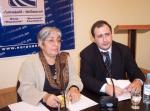 04.05.2009 “ARMENIA DID NOT SEEM TO BE STRANGE TO ME…” Interview with Fethiye Çetin
04.05.2009 “ARMENIA DID NOT SEEM TO BE STRANGE TO ME…” Interview with Fethiye Çetin
In the recent years the name of Fethiye Çetin became rather well-known within the Armenian public. She has been a lawyer of “Agos” newspaper founder Hrant Tink and his family for many years. Çetin became famous especially after she published memoir novel “My Grandmother”, where she, based on the facts, told us the story of her grandmother Heranush Kataryan’s life. She was one of those Armenian children who were captured and Islamized during the Armenian Genocide.
 27.04.2009 ON THE MANIFESTATION OF ARMENIAN DESCENT IN TURKEY
27.04.2009 ON THE MANIFESTATION OF ARMENIAN DESCENT IN TURKEY
Ruben Melkonyan
The problem of Armenian women and girls captured by Muslims during the Armenian Genocide has been in the spotlight of Turkish scientific and literature circles, especially in recent period, and this brings forward both news and questions. Mainly in the eastern parts of Turkey, i.e. in a number of places of historical Armenia, rather often people are met who state that they have Armenian ancestors. The issue of Islamized Armenian women has provided the material for contemporary Turkish literature. And one can even speak about the formation of a definite literary theme.
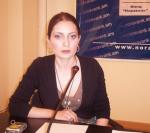 09.03.2009 PROBLEMS OF THE ARMENIANS OF SYRIA: THE ARMENIAN COMMUNITY OF DAMASCUS
09.03.2009 PROBLEMS OF THE ARMENIANS OF SYRIA: THE ARMENIAN COMMUNITY OF DAMASCUS
Araks Pashayan
Armenians settled in Syria from ancient times. Armenia had secular historical and cultural ties with that region. The Armenian community of Syria widened in 1915 by the emigrants, who had escaped the Armenian Genocide and then by the refugees from Cilicia. At current moment the number of Armenians in Syria is about 65-70 thousands. There are large Armenian communities in Aleppo, Kamishli, Damascus, Latakia, Kesap. Armenian Apostolic Church has two dioceses in Syria: the diocese of Beria...
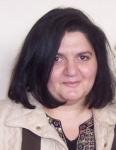 01.03.2009 “AYTMATOV AND MODERNITY”
01.03.2009 “AYTMATOV AND MODERNITY”
On February 26-27 in Bishkek the International Humanitarian Forum “Aytmatov and modernity” was arranged under the aegis of the Interstate Fund for Humanitarian Cooperation of CIS. More than one hundred political and public figures from Armenia, the RF, Belarus, Kazakhstan, Kirgizia, Uzbekistan, Ukraine, Azerbaijan and Turkey took part in the work of that forum. As it was stated by the vice-prime-minister of Kirgizia Uktomkhan Abdullayeva “the important aim of that forum is to elaborate the main recommendations for the future”.
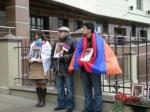 09.02.2009 ON MUTUAL PERCEPTION OF ARMENIANS IN TURKEY
09.02.2009 ON MUTUAL PERCEPTION OF ARMENIANS IN TURKEY
Ruben Melkonyan
The problem of mutual perception of different groups of the Armenians becomes of vital importance today but this time on the grounds of the Armenians in Turkey. The issue of the Armenians who were forced to convert their religion (i.e. who were Islamized) in Turkey has become the subject of wide speculations in scientific and analytical circles of Armenia quite recently. This unknown and veiled problem causes ambiguous reactions. First of all there is an objective problem of lack of information, which gradually vanishes and this generates both questions and answers.
 27.01.2009 “YERKIR” UNION’S STATEMENT REGARDING AN ARTICLE IN “AZERBAIJAN” OFFICIAL PERIODICAL OF THE NATIONAL ASSEMBLY OF THE REPUBLIC OF AZERBAIJAN
27.01.2009 “YERKIR” UNION’S STATEMENT REGARDING AN ARTICLE IN “AZERBAIJAN” OFFICIAL PERIODICAL OF THE NATIONAL ASSEMBLY OF THE REPUBLIC OF AZERBAIJAN
At the end of December an article entitled “The Javakheti Armenians Raise New Claims to the Official Tbilisi” was published in the “Azerbaijan” Official Periodical of the National Assembly of the Republic of Azerbaijan. A significant part of the article is dedicated to the activities of “Yerkir” Union directed towards the protection of the Armenian Minority Rights in Georgia.
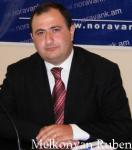 22.01.2009 ON MANIFESTAIONS OF IDENTITY IN TURKEY
22.01.2009 ON MANIFESTAIONS OF IDENTITY IN TURKEY
Ruben Melkonyan
In Turkish reality the issue of ethnic origin is rather delicate and it often finds reflection in politics, directly touches on state officials and politicians, causing different speculations. In Turkish “national” state belonging to other ethnos is regarded as an insult, something equal to “alien”. It is also a widespread method of “accusations” perceptible by vast masses. Very often state officials of high rank and politicians have to go into the problem of ethnic identity and relating “accusations”. You can notice some blur and contradictions in their statements and comments.
 19.01.2009 PRESS-RELEASE «Yerkir» Union of Non-governmental Organizations for Repatriation and Settlement
19.01.2009 PRESS-RELEASE «Yerkir» Union of Non-governmental Organizations for Repatriation and Settlement
“Yerkir” Union Expresses its Deep Concern about the Attitude of Indifference Demonstrated by Certain Human Rights Institutions with respect to Violations in Political Trials against the Javakheti Armenian Political Activists The events that took place in Akhalkalaki town of Samtskhe-Javakheti region of Georgia in June 17-21, 2008 under very obscure and strange circumstances, i.e. the explosion that occurred near the house of the head of the regional police and the death of two ethnic Armenian policemen...
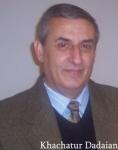 09.01.2009 ARMENIAN COMMERCIAL PRESENCE IN TIFLIS (Late Middle Ages – 1918)
09.01.2009 ARMENIAN COMMERCIAL PRESENCE IN TIFLIS (Late Middle Ages – 1918)
Khachatur Dadaian
The Armenians have been inhabited in Tiflis1 since its foundation, 5th century, and the 15 centuries to follow they have always had a big role in the city’s prosperity. Let’s bring just a few examples on the problem coming from late Middle Ages. Thus, in 1650, King Rostom conferred on the Armenian Prince Bayandur “the authority to rule the big Tiflis City”, while in 1714, by the Royal Charter, Prince Behbutyan was granted the Melikdom of Tiflis, that was to become hereditary to that family (until 1801, 15 Behbutyans had successively occupied that position). Jean Chardin, a French traveler, attested that in 1671, of the 14 churches in Tiflis, 8 were Armenian, while another Frenchman, botanist Joseph de Tournefort...
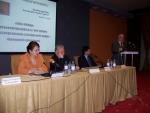 25.12.2008 SCIENTIFIC CONFERENCE DEVOTED TO THE 60TH ENNIVERSARY OF REPATRIATION IN 1946-1948
25.12.2008 SCIENTIFIC CONFERENCE DEVOTED TO THE 60TH ENNIVERSARY OF REPATRIATION IN 1946-1948
On December 13-14 by the initiative of the RA Ministry of Diaspora, the Institute of Science (RA Academy of science) and “Noravank” foundation was held an international scientific conference in Tsakhkadzor on the subject “Repatriation of 1946-1948 and its lessons: the problem of repatriation today” devoted to the 60th anniversary of mass repatriation of late forties of the last century.
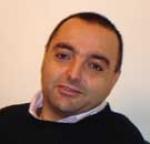 18.12.2008 ARMENIANS OF JAVAKHK DESERT THEIR MOTHERLAND Interview with the President of "Yerkir" Union of NGOs for Repatriation and Settlement Sevak Artsruni
18.12.2008 ARMENIANS OF JAVAKHK DESERT THEIR MOTHERLAND Interview with the President of "Yerkir" Union of NGOs for Repatriation and Settlement Sevak Artsruni
- Mr. Artsruni, your organization raised the alarm about Georgianization of the Armenian St. Norashen church in Tbilisi as far back as June 2008. How do you assess the processes developing at present?
- Norashen is only a manifestation of a whole process that started since the independence of Georgia and becomes more dangerous. All three Presidents of Georgia – Gamsakhurdia, Shevardnadze and today Saakashvili – were guided by the same scenario against the ethnic minorities of the country and led by the same principles not giving political status to ethnic minorities in Georgia...
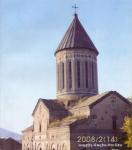 01.12.2008 GEORGIAN EPARCHY OF THE HOLLY ARMENIAN APOSTOLIC CHURCH IS ISSUING A SPIRITUAL, CULTURAL, INFORMATION JOURNAL “NORASHEN”
01.12.2008 GEORGIAN EPARCHY OF THE HOLLY ARMENIAN APOSTOLIC CHURCH IS ISSUING A SPIRITUAL, CULTURAL, INFORMATION JOURNAL “NORASHEN”
It has been issued the periodical of spiritual, cultural, information journal of the Georgian eparchy of the Armenian Apostolic Church “Norashen” (2008/2 (14)). The issue has the following columns: “Religious-moral perceptions,” “Diocesan Herald,” “Press Center,” “In the Agenda: “Norashen,”” “The Guest of the journal,” “Armenian communities in Georgia,” “Favorite Armenians in Georgia,” “Culture.” On the pages of this issue are presented the steps made by the Georgian clergy for the last two decades directed at assimilating the Norashen located Armenian Church after Saint Astvatsatsin (the Blessed Virgin Mary) in Tbilisi...
 27.11.2008 A PILGRIMAGE TO CALCUTTA RECALLS ARMENIAN HISTORY
27.11.2008 A PILGRIMAGE TO CALCUTTA RECALLS ARMENIAN HISTORY
Leonard M. Apcar
Before there were call centers and Indian conglomerates, before the East India Co. or the British Raj, there were Armenians who made their way to India to trade and to escape religious persecution from the Turks and, later, Persians. Entrepreneurial and devout Christians...
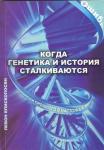 17.11.2008 WHEN GENETICS AND HISTORY COLLIDE Essays on genetic anthropology
17.11.2008 WHEN GENETICS AND HISTORY COLLIDE Essays on genetic anthropology
Levon Yepiskoposyan
The history of the origin of man, his colonization of the planet, the appearance of different ethnic groups and their migrations are indelibly embedded in our genome. This decay-resistant and indestructible data contains not only encoded information of the biological past of Homo sapiens, but also the results of the impact of various cultural practices and ancient contacts of our ancestors on the genetic pattern of modern populations. It is the task of genetic anthropologists to decipher theses 'records'. They have been singularly successful in this mission having already established the genesis of the founding mother and father of mankind...
30.10.2008 ON THE ISSUES OF HAMSHENS’ IDENTITY
Mahir Ozkana of Hamshen origin inhabited in Turkey may be called a representative of Hamshen intellectuals. At present he is engaged in pedagogics and teaches at school. Not long ago in the Turkish press was published his article on the issues of Hamshens’ identity. Below you can read this article’s minor version. Hamshens are a nation which throughout the history has suffered a number of traumas. Like a heavy burden they carry on themselves influences of developments happening immediately with them or around them.
 02.10.2008 “ARMENIAN ORIGIN OF HAMSHENS SEEMS MORE PROBABLE TO ME”
02.10.2008 “ARMENIAN ORIGIN OF HAMSHENS SEEMS MORE PROBABLE TO ME”
In July of the current year, within the framework of “Hamshen week” in Yerevan took place the concert of “Vova” concert group. The group has been set up with the effort of a number of Hamshens. Since 1996 they have been gathering Hamshen national songs and tunes, which in most of the cases have no names. As one of the group leaders Hikmek Akchicheq mentions, they are very much worried that in the quickly changing world a serious danger can be exposed both to the Hamshen dialect and the songs in this dialect, and they have an objective to gather, arrange and hand on the generations to come Hamshen unique tunes and songs.
 31.07.2008 OLYMPIC SECURITY COLLABORATION
31.07.2008 OLYMPIC SECURITY COLLABORATION
Drew Thompson
Hosting the 2008 Olympics provides China with an opportunity to demonstrate its unprecedented progress. With that opportunity, however, also comes risk, including increased threats to security. The international spotlight that accompanies the Olympics makes it a high-profile target for domestic and international terrorists, as well as political activists both from China and abroad. China has made immense efforts to ensure that the Olympics are safe and secure, including extensive investments in infrastructure, planning and international cooperation.
30.07.2008 INTERNATIONAL SCIENTIFIC CONFERENCE DEVOTED TO THE PROBLEMS OF HAMSHEN AND HAMSHEN ARMENIANS
On July 23 in “Congress” hotel in Yerevan was held an international scientific conference on the subject “Hamshen and Hamshen Armenians: history and culture” by the initiative of the RA NAS (National Academy of Science) Institute of Oriental Studies and Yerkir Union for Repatriation and Settlement. Specialists from Armenia, Russia and Turkey appeared with reports. The conference was quite comprehensive: Were made reports devoted to the problems of Hamshen and Hamshen Armenians. The director of the Institute of Oriental Studies, Ruben Safrastian, was the first to take the floor with words of welcome accentuating the importance of studying the problems of Hamshen Armenians.
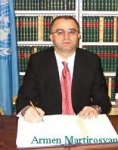 28.07.2008 WHAT IS GOOD AND WHAT IS BAD
28.07.2008 WHAT IS GOOD AND WHAT IS BAD
Armen Martirosyan
To this very analogical question with reference to methods of long-term economic progress of developing countries a group of experts headed by the Standford University professor, the Nobel Prize laureate Michael Spence was making an attempt to answer. Well known specialists of different spheres from different countries have analyzed and summarized experience of 118 developing countries and made it a ground to represent corresponding recommendations. Although the authors didn’t have an objective to secure high rate of economic growth in the long-term perspective, however, according to them, the conclusions made may be useful while working out and carrying out social-economic and political reforms in developing countries.
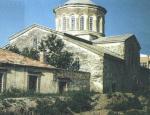 01.07.2008 SPECULATIONS ON THE ISSUE OF CRYPTO ARMENIANS
01.07.2008 SPECULATIONS ON THE ISSUE OF CRYPTO ARMENIANS
Ruben Melkonyan
The issue of crypto and Islamized Armenians from time to time appears in the agenda of Turkish press, political and scientific circles and becomes reason of various speculations. Even superficial observations let us suppose that speculative policy has a tendency to grow up to the extreme form. In general, the Armenian subject-matter is a delicate and issue. The subject of crypto and Islamized Armenians has been supplemented to it recently making a ground for the Turkish propagandistic machine to raise a new wave of falsification.
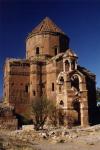 09.06.2008 THE CUSTOM OF INTERCOMMUNITY MARRIAGES AMONG THE CRIPTO ARMENIANS OF TURKEY
09.06.2008 THE CUSTOM OF INTERCOMMUNITY MARRIAGES AMONG THE CRIPTO ARMENIANS OF TURKEY
Ruben Melkonyan
Among the Islamized Armenians in Turkey the group of cripto Armenians is especially distinguished on the level of self-consciousness, which in comparison with the other groups of Islamized Armenians aspires at preserving its national characteristic. This very group secretly continues preserving and maintaining many elements of national, religious customs. It is not out of place to mention that cases of converting religion (readopting Christianity) were mainly recorded among the representatives of this group.
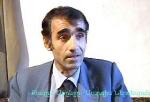 02.06.2008 RETURN OF THE MALATIAN CRIPTO ARMENIANS TO THEIR ORIGIN
02.06.2008 RETURN OF THE MALATIAN CRIPTO ARMENIANS TO THEIR ORIGIN
Ruben Melkonyan
We have not once spoken about different phenomena occurred among the cripto Armenians inhabited in Turkey and out of its borders such as conversion of religion, returning to their sources and origin. As the facts have come to prove they are motivated by different reasons. On May 28 a few of the Turkish mass media, including the well known CNN-Turk, Milliyet, DHA (“Doghan” new agency) announced that one of the popular musicians of Malatia...
 29.05.2008 PURPOSES OF DEVELOPMENT AND WHAT WE SHOULD CHOSE
29.05.2008 PURPOSES OF DEVELOPMENT AND WHAT WE SHOULD CHOSE
Armen Martirosyan
Although according to Kozma Prutkov “it is impossible to embrace immense,” however, this is what the UN state-members are busy with in their every day activity. The agenda of this unique international organization includes all the spheres of human vital activities. So, by the character of activity I have to face the progressing experience of many countries of the world. While considering the relevant issues of agenda, it is very useful to have rich scientific and practical materials in our disposal: It has come to prove that there is nothing new in this sphere: problems our society has today are identical to those all the developing countries confronted and are confronting during the 63-year UN activity.
25.04.2008 THE ARMENIAN GENOCIDE OF 1915-1923: A VIEW FROM TBILISI, ISTANBUL AND YEREVAN
On April 19 of the current year in Georgia was held an international conference on “The Armenian Genocide of 1915-1923: a view from Tbilisi, Istanbul and Yerevan” in the French cultural center after A. Duma. The conference was organized by the Armenian Cooperation Center of Georgia. At the opening ceremony the head of the Center, Karen Elchyan, announced that with every coming year the issue of Genocide becomes more and more actual, moreover, the movement and struggle for this crime to be recognized and condemned includes more and more people.
 25.04.2008 WE ARE ALSO ARMENIANS...
25.04.2008 WE ARE ALSO ARMENIANS...
One of the most important aspects of cripto or forcedly Islamized Armenians is the extent the national self-consciousness and strata are preserved. As various sources and facts have come to prove the impulses inciting awake of national self-consciousness or recognition of real identity are quite different, something, that in the future may have different manifestations.
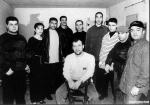 21.04.2008 MORE PROBABLY I’M ARMENIAN...
21.04.2008 MORE PROBABLY I’M ARMENIAN...
It has been repeatedly mentioned that one of the most important problems of the contemporary Turkish society is the so called “crisis of identity.” The people who were subject to assimilation in different historical periods and their generations have serious suspicions about their ethnic belonging, which aggravates into crisis by time. In this aspect one should just reveal the research results of English and German specialists, according to which 38-40% of the population in Turkey don’t consider themselves to be Turks.
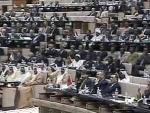 15.04.2008 ISLAMIC CONFERENCE ON THE WAY OF MODERNIZATION
15.04.2008 ISLAMIC CONFERENCE ON THE WAY OF MODERNIZATION
Araks Pashayan
On March 13-14, 2008 in the capital of Senegal, Dakka, was held the 11th summit of the supreme political body of the Islamic world – Organization of the Islamic Conference (OIC) – on the subject “Islam in the 21st century.” the conference was participated by the delegates of more than 57 countries – the structure members, the first figures of about 40 Islamic states. At the summit was adopted a concluding communiqué resembling different aspects of cooperation of Islamic states and Dakkan memorandum.
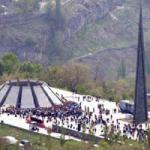 25.02.2008 SURVIVED ARMENIANS: ERMENI VARTO ASHIRET
25.02.2008 SURVIVED ARMENIANS: ERMENI VARTO ASHIRET
Ruben Melkonyan
The Armenian Genocide caused not only massacre of 1500000 Armenians and forcedly Islamisation of thousands of them but also numerous personal and family tragedies. The instinct of self-defense and living forced Armenians make incredible steps: one of the numerous examples is the story of an Armenian family called Ermeni Varto ashiret: They were able to survive through hardships and even the fact of their existence was not known tens of years. During the Armenian Genocide was also exiled the Jizre province inhabitant Armenian Varto tribe, which used to be quite populous and rich. Being attacked on their way, the five families of the tribe runs away and finds a shelter in the well known Judi Mountain.
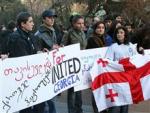 07.02.2008 SPECIAL PRESIDENTIAL ELECTIONS ON JANUARY 5, 2008 IN GEORGIA: A VIEW FROM JAVAKHQ
07.02.2008 SPECIAL PRESIDENTIAL ELECTIONS ON JANUARY 5, 2008 IN GEORGIA: A VIEW FROM JAVAKHQ
Sergey Minasyan
On January 5, 2008 over the whole territory of Georgia were held presidential elections. According to the Georgian Central Election Committee in the first round the ex-president (from January 2004 to November 2007) M.Sahakashvili was ahead in the palls getting for about 53% of votes.
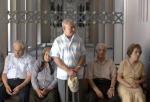 05.02.2008 ISSUES CONCERNING TO APOSTATE ARMENIANS IN TURKEY
05.02.2008 ISSUES CONCERNING TO APOSTATE ARMENIANS IN TURKEY
Ruben Melkonyan
While speaking about apostate Armenians one often comes across the disputable question of defining their present status and at the same time faces multilevel problems. The heterodox Armenians of Turkey are on different levels of assimilation and not all of them have a clear Armenian ethnic characteristic and they may conditionally be divided into two groups: Ethnically clean Armenians, who have preserved national and religious (Christian) traditions, holidays...
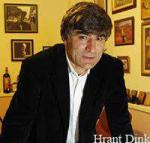 18.01.2008 IN SEARCH OF ROOTS RAYS OF MEMORY AMONG THE DESCENDANTS OF ISLAMIZED ARMENIANS
18.01.2008 IN SEARCH OF ROOTS RAYS OF MEMORY AMONG THE DESCENDANTS OF ISLAMIZED ARMENIANS
Ruben Melkonyan
It’s already quite a long period of time that among the forcedly Islamized Armenians and their descendants living in Turkey one can witness different intriguing processes which have directly or indirectly come to prove about preservation of certain layers of national self-consciousness and memory. In particular, in parallel with the unfolding discussions about “crisis of identity,” in the press are being spread stories of Islamized Armenians, are published announcements of people searching for their roots, lost relatives. In the Istanbul published newspaper “Agos” are a lot of suchlike announcements...
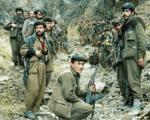 28.09.2007 THE TURKISH HISTORIC ABOUT APOSTATE ARMENIANS
28.09.2007 THE TURKISH HISTORIC ABOUT APOSTATE ARMENIANS
Ruben Melkonyan
Some “ideas” about apostate Armenians expressed by the Chairman of the “Historical society of Turkey,” the “courtier” historian Yusuf Halachoghlu at the symposium held on August 18 of the current year in Kesaria, immediately caused wide resonance in the Turkish press, among political, scientific circles and intellectuals. At the symposium mentioned Halachoghlu announced that the majority of Kurds in reality were of Turkish origin, and Alevi-Kurds were apostate Armenians, who had outwardly adopted Islam and changed their names to avoid “emigration” in 1915...
 19.07.2007 The Islamization of Armenian children at the period of the Armenian Genocide
19.07.2007 The Islamization of Armenian children at the period of the Armenian Genocide
Ruben Melkonyan
After the intrusion of the Turkish tribes into the Asia Minor and the Armenian Highland the population inhabited in those territories was continuously forcefully Islamized. Children have always been considered the best targets for the conversion of religion as at such an early age it is easy to wipe away their still forming religious and national self-consciousness.
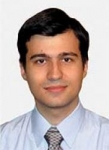 25.06.2007 CZECH ARMENIANS: A SMALL COMMUNITY WITH A STRONG POTENTIAL
25.06.2007 CZECH ARMENIANS: A SMALL COMMUNITY WITH A STRONG POTENTIAL
Sergey Sumlennyy
The Armenian community in the Czech Republic is small and the number of Armenians living in this country is slightly over 1,000 people. Nevertheless, it stands out as an example of successful development of –the migrant community in the Czech Republic. The members of the Armenian community are active in social life and social ties within the community are strong and diverse.
14.06.2007 Education 2015
On June 11-12 of the current year in “Marriott Hotel” of Yerevan was held “Education 2015” conference in the frameworks of working out a strategic conception of developing education in Armenia. At the conference were discussed challenges issued to education coming from the problems of Armenia’s economic, social and economic development, as well as prospective and priority of developing education, the role of education system in the context of national development. At the plenary sitting and group discussions was also discussed the main provisions of strategic vision, primary directions and dominations.
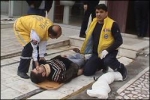 01.06.2007 Assassination in Malatia (Reasons and consequences)
01.06.2007 Assassination in Malatia (Reasons and consequences)
Ruben Melkonyan
On April 18, 2007 in the publishing house “Zirve” situated in Turkish city Malatia were assassinated three coworkers of the publishing house, two of which were of German and one of Turkish origin. This publishing house was publishing and spreading Christian literature. It means that being the followers of Protestant Church they were carrying out missionary activity in Turkey.
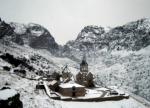 10.05.2007 The Many Faces of Noravank
10.05.2007 The Many Faces of Noravank
Not long ago was launched a DVD “The Many Faces of Noravank” by the support of the Chairman of the Republic of Armenia’s Central Bank Dr.Tigran Sargsyan and with a generous grant from UNIBANK. The photographs featured in the DVD are the work of Der Sahak kahana, Martirosyan, the spiritual father of Noravank. According to the historical Stepanos Orbelian, the history of Noravank Dates back to as early as the 4th and 5th centuries, where the churches of St. Karapet and St. Pokas existed on the site.
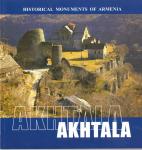 07.05.2007 Armenia’s historical monuments
07.05.2007 Armenia’s historical monuments
On May 3, 2007 in the museum after S. Parajanov took place the presentation of the book “Akhtala” from the series of “Armenia’s historical monuments” (in Armenian and English languages) by the initiative of the Chairman of the Social Security Fund Vazgen Khachikyana and under the support of the Armenian Young Women’s Assosiation president Lilit Asatryan. The presentation was devoted to the history, architecture and activity of one of the most famous monuments of medieval Armenian culture – the monastery complex and stronghold of Akhtala. The book was published in the institute of RA National Academy of Science.
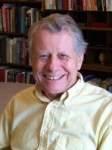 07.05.2007 Extraction and Democracy
07.05.2007 Extraction and Democracy
Charles Tilly
You might not have noticed that the authoritarian Louis XIV indirectly opened a path toward democratization, and that the authoritarian Vladimir Putin might likewise be opening a path toward democratization. It will take some unpacking to show you the parallels between the two visibly vindictive autocrats, and even more to identify their possible long-run contributions to democracy. But at least the unpacking will reveal some promising ways of thinking about taxation, fiscal sociology, and state extraction more generally.
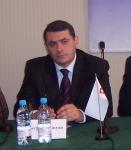 10.04.2007 Ethnic minorities of Georgia: power of integration by the example of the country’s Armenian population
10.04.2007 Ethnic minorities of Georgia: power of integration by the example of the country’s Armenian population
On April 10, 2007 Caucasus Media Institute (CMI) and “Yerkir” Union of NGO’s for Repatriation and Settlement organized the presentation of the Armenian and Russian versions of the book of the head of CMI Caucasus Studies department Sergey Minasyan called “From Political Rallies to Conventions”, where were also presented the brief versions of the book in English and Georgian. The book was published by joint effort of CMI and the Union. The book is devoted to different aspects of a human and minority rights in Georgia. By the example of Armenian-populated Samckhe-Javakhk the author proposes mechanisms and recommendations for achieving a compromise between minorities’ needs to preserve their identity, language and culture, and to achieve factual political rights, on the one hand, and their profound civil integration on the other.
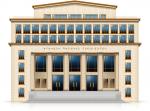 05.04.2007 The Center for Civilization and Cultural Studies was opened in the Yerevan State University
05.04.2007 The Center for Civilization and Cultural Studies was opened in the Yerevan State University
The Center was opened on April 5, 2007 (headed by David Hovhannisyan) and will work under the Yerevan State University. Fundamental researches in the sphere of culturology, political science, geopolicy will be conducted in the Center. Here will also be carried out experimental analysis of civilization processes and current political events. The center plans to publish a quarterly bulletin and a monograph. The director of “Noravank” Foundation was present at the opening ceremony as the Center’s council member.
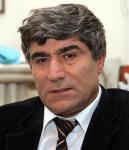 22.02.2007 The assassination of Hrant Dink and political developments
22.02.2007 The assassination of Hrant Dink and political developments
Sargis Harutyunyan
If the developments on Karabakh issue may be considered to be the most important political issue of 2006, then Armenian-Turkish relations pretend to take the first place in the prospective of 2007. Just like in case of Karabakh developments, any serious change in Armenian-Turkish relations may have its influence on the whole region. It is not by chance, that at lest the two of the international force centers, presented in South Caucasus, spare no effort to transform Armenian-Turkish relations. In the above mentioned context it is obvious, that the assassination of Hrant Dink, the chief editor of “Agos” newspeperon, on January 19, 2007, relates not only to Armenian-Turkish relations, but also is reflected in regional developments.
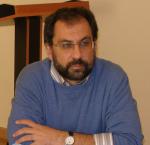 25.01.2007 Cheers! Here
25.01.2007 Cheers! Here
Georgi Derluguian
This toast is to the revolution in social science. May it continue into 2007! Are you puzzled? Between the economistic orthodoxy on one flank, the postmodern maze of doubts on the other and the drudgery of the low-pay, high-effort academic existence in the middle, where is there any hint of a revolution? But curb the cynicism, it is bad for your health. Bring out the analytical tools of our trade. The historical trajectories that lead to the present situation in the field can help map our future possibilities. Social analysis is a very modern occupation. It was made possible by the two key realisations of the Enlightenment: that our universe was rationally knowable and that it has been changing.
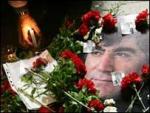 23.01.2007 Can Armenian-Turkish dialogue survive writer
23.01.2007 Can Armenian-Turkish dialogue survive writer
Richard Giragosyan
For decades, the month of April has been a time for grieving by Armenians and their diaspora, with routine commemorations marking the onset of the Armenian genocide in the waning days of the Ottoman Empire. But following the January 19 assassination in Istanbul of prominent Turkish-Armenian writer and editor Hrant Dink, January too has assumed significance. The death of the 53-year-old Dink, who was gunned down on the steps of the editorial office of his newspaper "Agos," is more than simply a tragic killing. Its significance lies, first, in its timing.
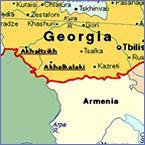 11.12.2006 The Armenian community in Tbilisi: conclusion
11.12.2006 The Armenian community in Tbilisi: conclusion
Tamara Vardanyan
As a completion of the research conducted by “Noravank” Foundation in the Armenian community in Tbilisi we present our conclusions and suggestions, which will give our research an applied character. Republic of Armenia should have clear cut position to preserve the Armenian community in Tbilisi and organize repatriation, especially taking into consideration the tendencies of Javakhk problem to become more complicated1. The mentioned position should stream from the common conception of national security. If from the strategic standpoint that community has its role for RA, it is very important to work out approaches for preserving and later on developing the community.
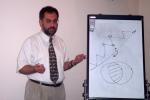 29.06.2006 “Macrosociological theory of the state and the revolutions of Charles Tilly and Immanuel Wallerstein”
29.06.2006 “Macrosociological theory of the state and the revolutions of Charles Tilly and Immanuel Wallerstein”
On June 16 the famous sociologist and the professor of North-Western University in Chicago Georgi Derlugyan lectured in Caucasus Research Resource Centre (CRRC) on the subject of macrosociological theory of the state and the revolutions of Charles Tilly and Immanuel Wallerstein.
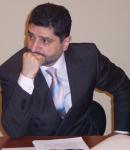 29.05.2006 Armenian civilization as an ambitious project
29.05.2006 Armenian civilization as an ambitious project
Tigran Sargsyan
The 21st century poses new threats for Armenians. To respond them, one must have answers to some fundamental question which will be the guide lines to shape our strategy. Questions connected with world outlook civilization are especially important. Whether Armenia and the Armenians are the carriers of steady (local) civilization? Which were the countries or cultures which exerted more influence on Armenians (negative or positive)? Which western values are in keeping with our national character and which of them contradict them endangering our national security? If Armenia is able to preserve its identity, not to be integrate into larger civilization systems and carry a mere dialogue of civilizations?
18.04.2006 Russian Orthodox Church and Christian approaches to the problems of liberties
10th international Russian council (Sobor) towards 21 century challenges One of the main problems troubling the humanity in up to date world in the process of active globalization is the connection of human rights and the principles of liberties with moral norms. According to Christian creed the key principle of human dignity is morality while at the heart of liberal philosophy is more the supremacy of law then morality. The ousting of the idea of sin from every day life and from the sphere of intellectual discurs leads to washing out of the borderline between good and evil.
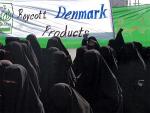 09.03.2006 Global confrontation and “the caricature war”
09.03.2006 Global confrontation and “the caricature war”
Davit Hovhannisyan
At the end of XVII century France of Ludovicus XIV declared war to Holland reasoning it by the fact that the Dutch had made a special medal on which was depicted how Navin’s son Jesus, embodying Holland, was stopping the sun (let’s remind that Ludovicus XIV contemporaries called him “the king of sun”). Sometimes the states wage war even because of football, however these seeming reasons are just causes to hide the real essences of conflicts.
01.03.2006 Towards 21 century challenges
On February 14 the student union “Nikol Agxbalyan” hold a conference on the subject of “Djavakhq: tawords 21 century challenges” in the big conference hall of “Metropol” hotel. At the meeting were discussed a wide spectrum of problems troubling the Armenians in Djavakhq. The representatives of a number of youth unions of Armenian parties (ARP, “New times”) and non governmental organizations, analysts and historians took part at the meeting. Here were discussed the scope of protecting the rights of Djavakhqian Armenian and the possible assistance which may be rendered to them without violating the norms of international law.
16.01.2006 The grammatical principles of the psychological weapon’s design in foreign policy discursus
Levon Ghazaryan
In the XX century much attention was devoted to “psychological” or “informational” war (more prosaically expressed specific propagandas) issues. Psychological operations were included in military regulations. Yet, the issues of linguistic significance were lost in widely excepted methods of semeiotic manipulations and the foreign policy meaning of that rather presumptuously called “psychological weapon”. Nevertheless, these issues are directly connected with the production of foreign policy propaganda texts, anyhow at peace time.
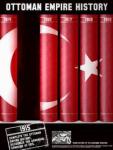 29.09.2005 The Armenian ethnoreligious elements in the Western Armenia
29.09.2005 The Armenian ethnoreligious elements in the Western Armenia
Karen Khanlaryan
The Armenians inhabited in Turkey are quite heterogeneous from the standpoint of internal relationships and by the extent of assimilation and represent different characteristic traits. Armenian patriarchy in Turkey, Archbishop Shnork Kaloustian, in 1980 said the following about provincial Armenians in Jerusalem: “I’ll present you four stratums of provincial Armenians as I have seen them: Armenians, who consciously and voluntarily became Muslims, have broken off from Armenians and live within Turks. These people are for about one million.
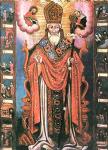 12.04.2005 The spiritual preconditions of the acceptance of Christianity in Armenia
12.04.2005 The spiritual preconditions of the acceptance of Christianity in Armenia
Raphael Papaian
The reason why Armenia was comparatively quickly Christianized in 301 and its priority in the process when Christianity turned into one of the most powerful world religions is partially explained by the use of violence and political commonsense at the same time ignoring the very factor of religion. Comparing the Armenians religious ideas with classical paganism and Zoroastrianism let us see the principal differences between old Armenian religions. The basis of pagan cosmogony is birth, and the ones of Christianity are Creator and creations. In pre-Christian faiths of Armenians the beginning of the world is connected with a much stronger act of creation than in other pagan systems: the supreme God is considered to be the creator of the heavens and the world.
Analitics 1 - 210 of 210
First page | Prev | 1 | Next | End | По стр.
